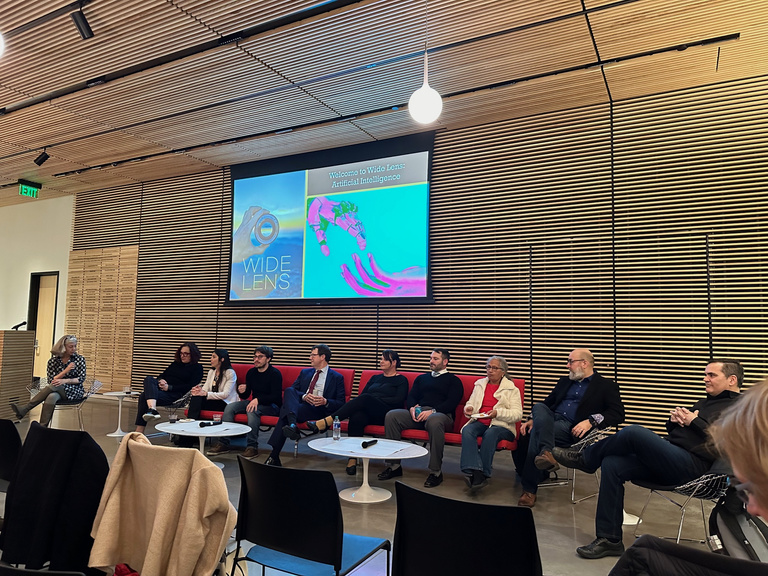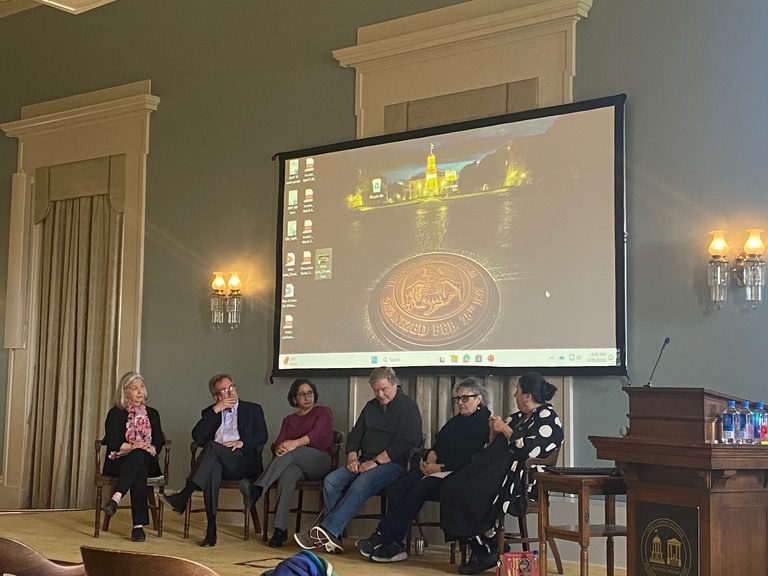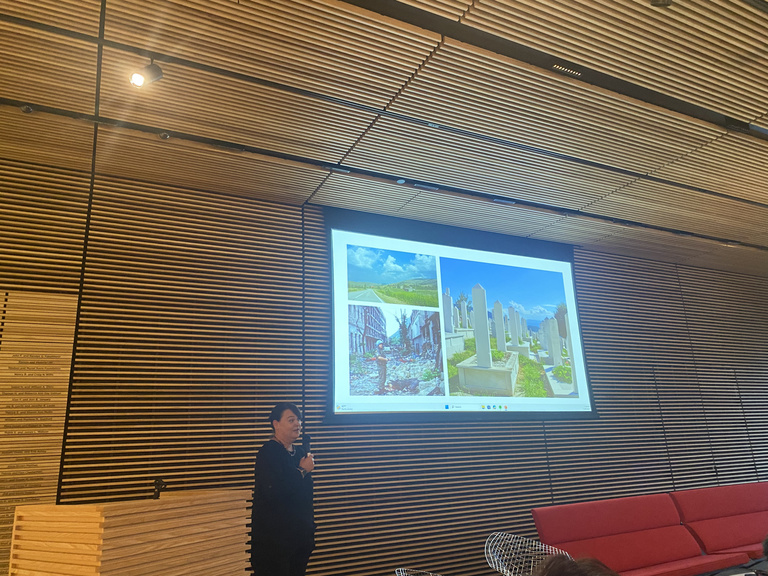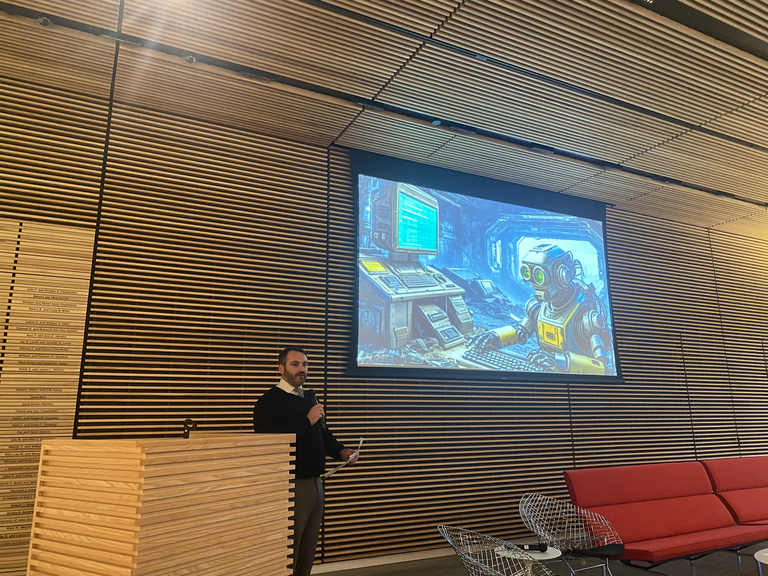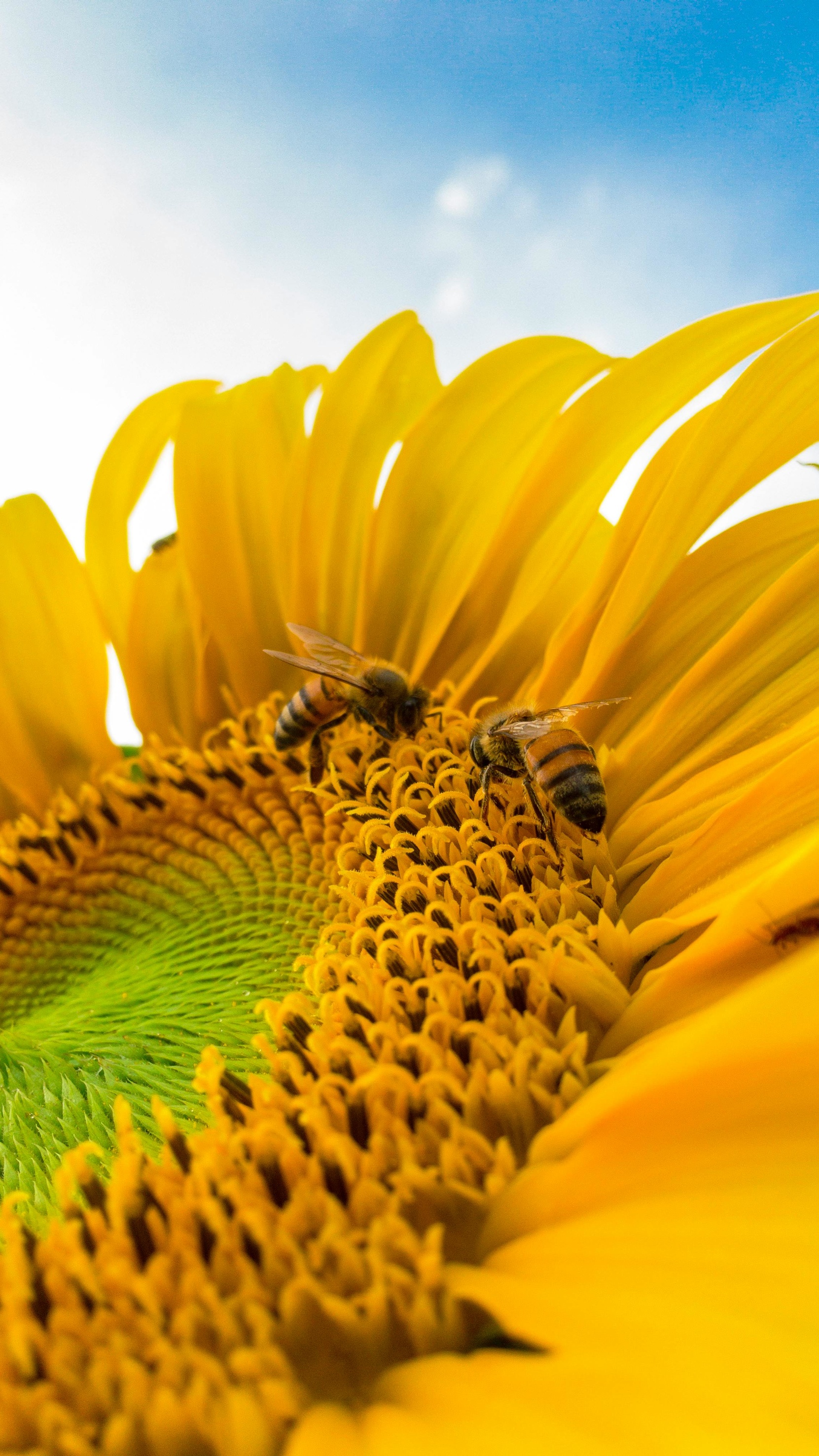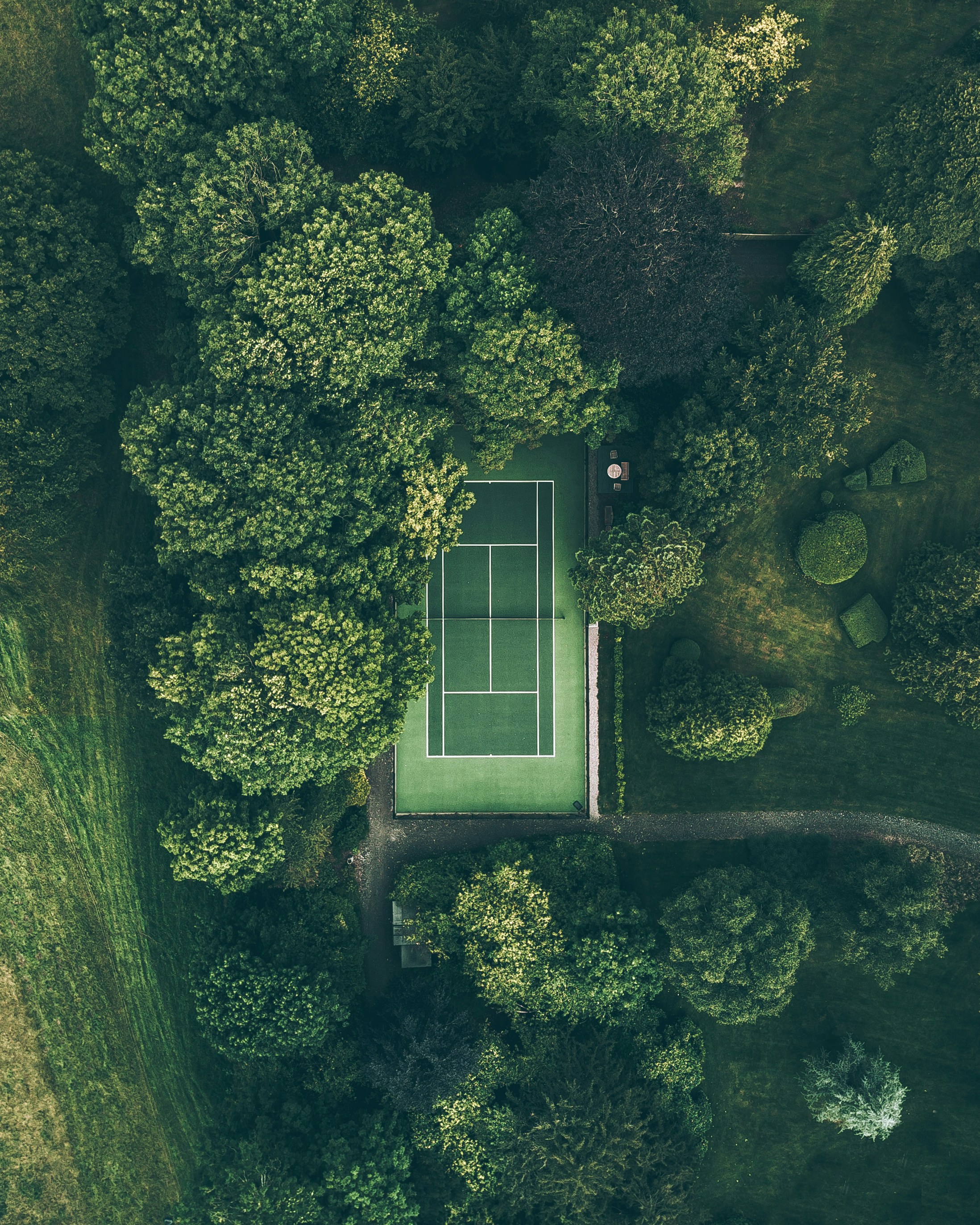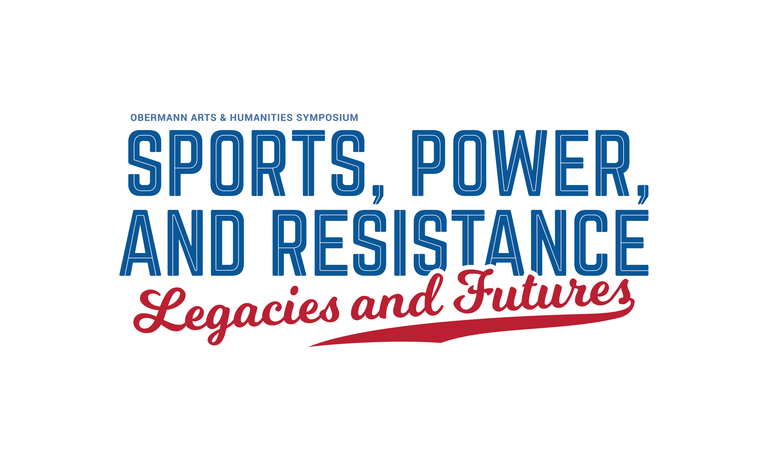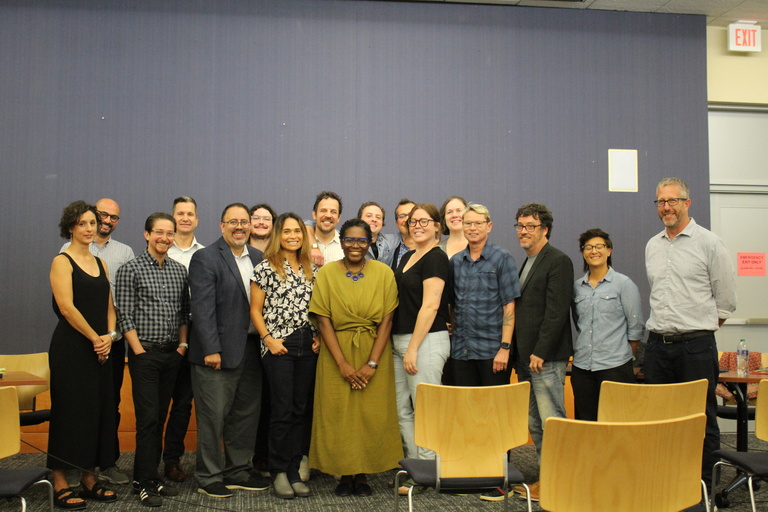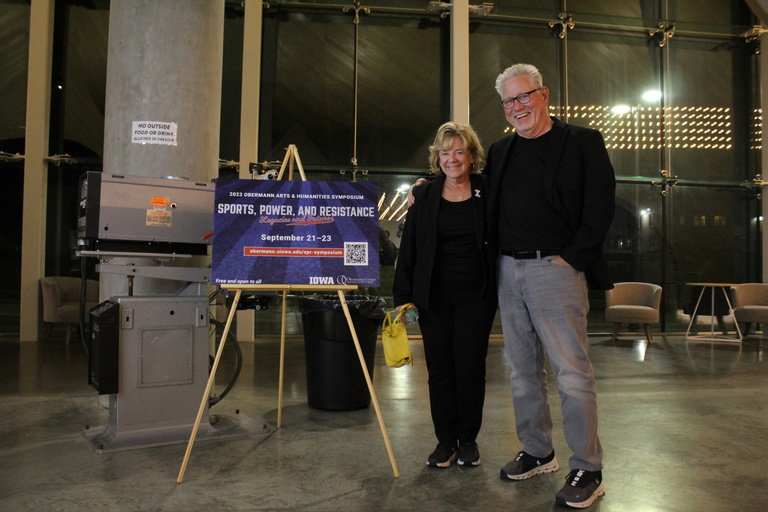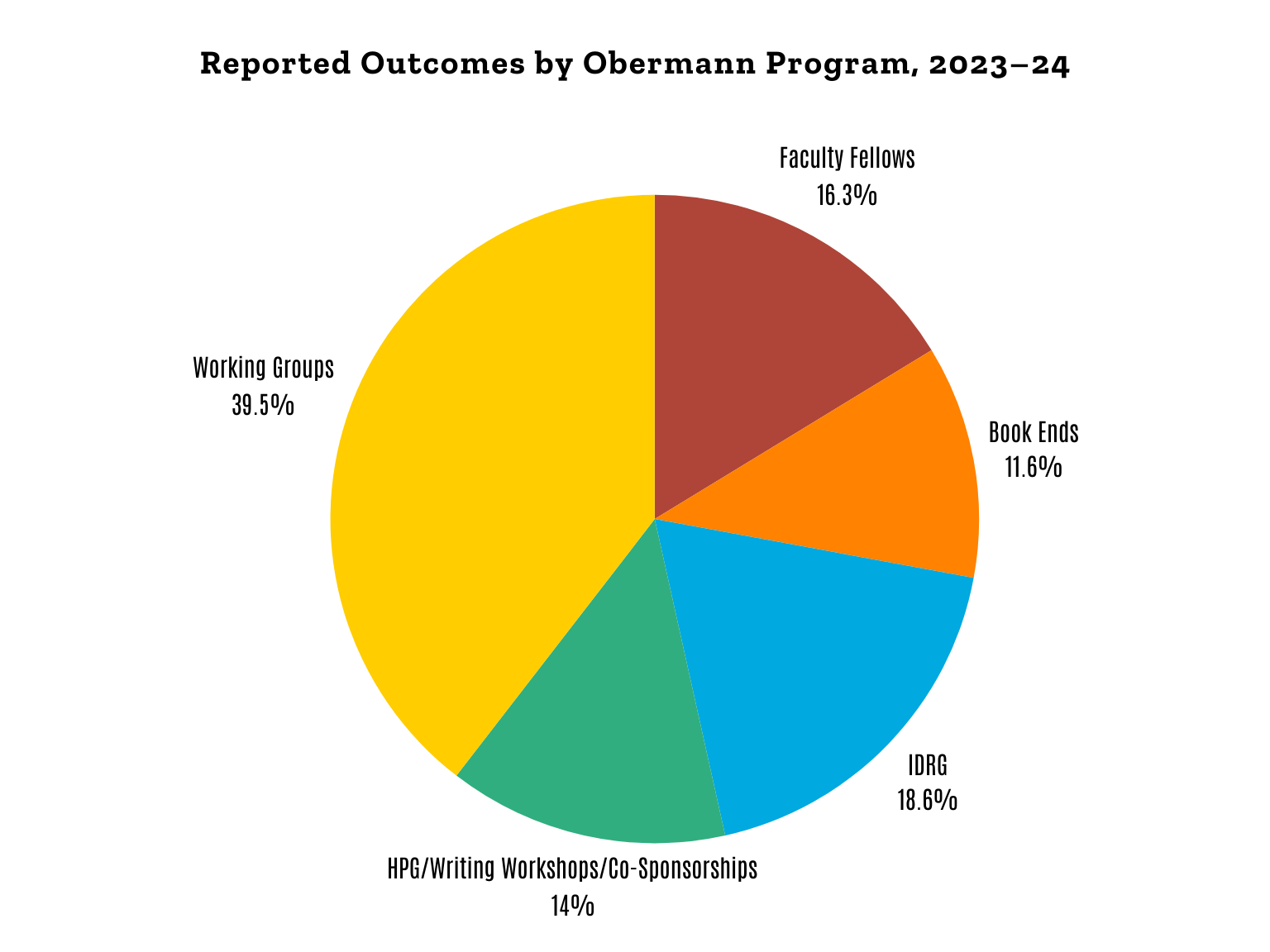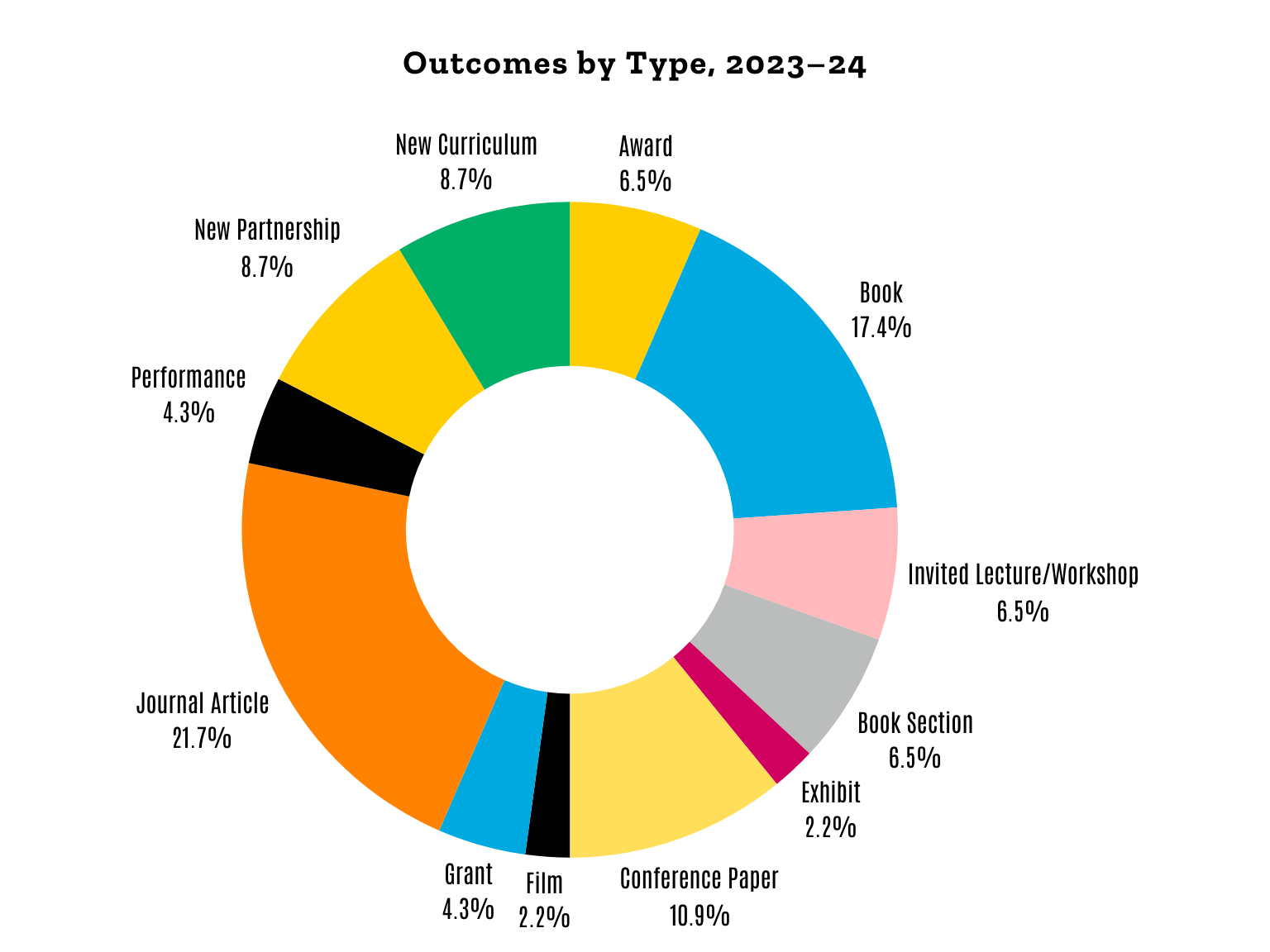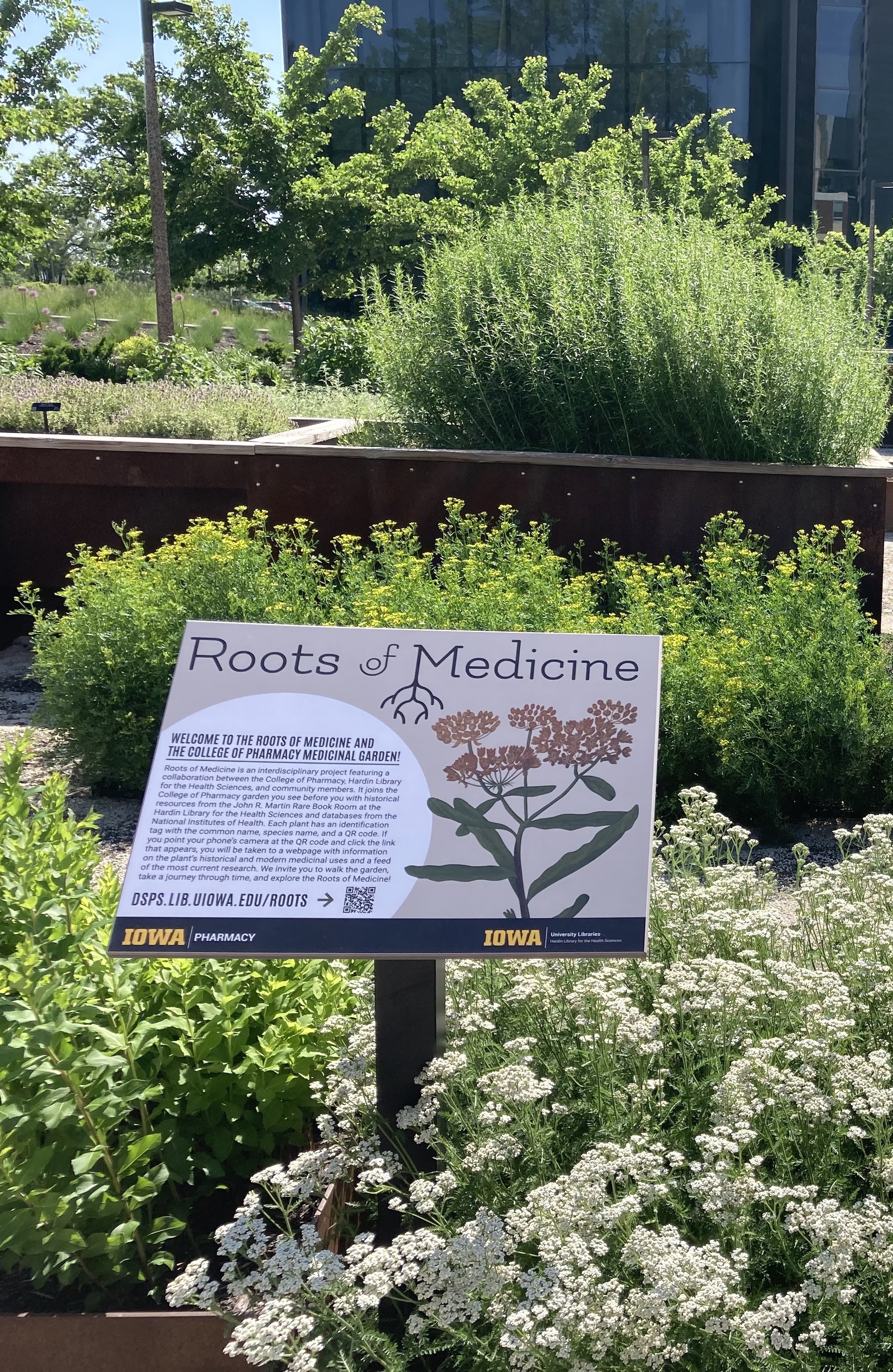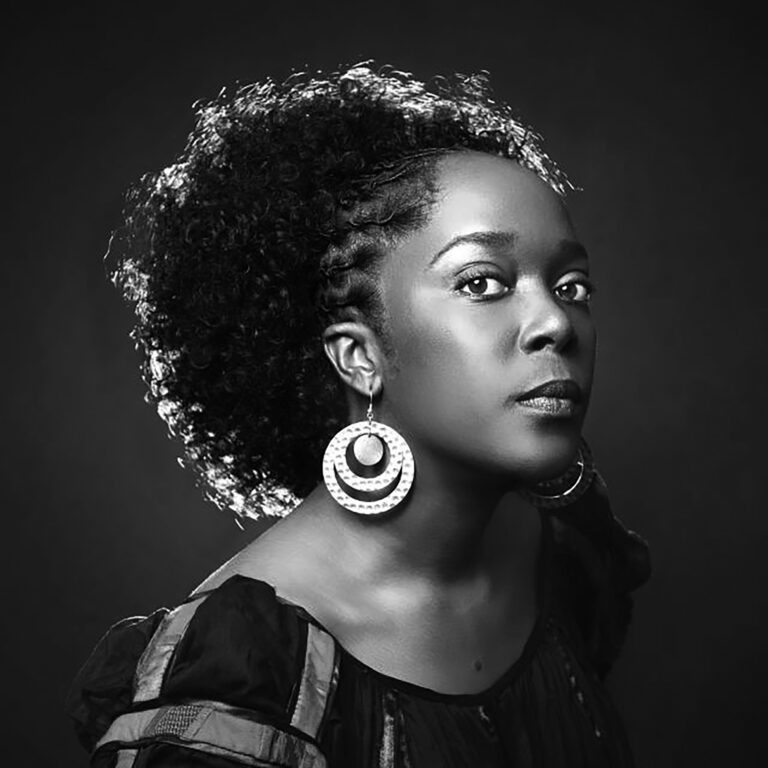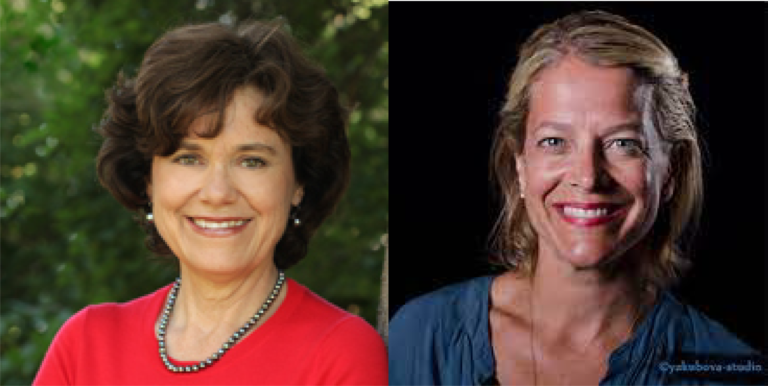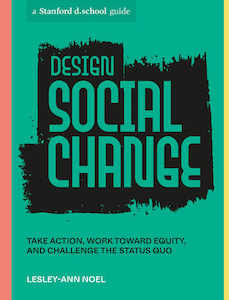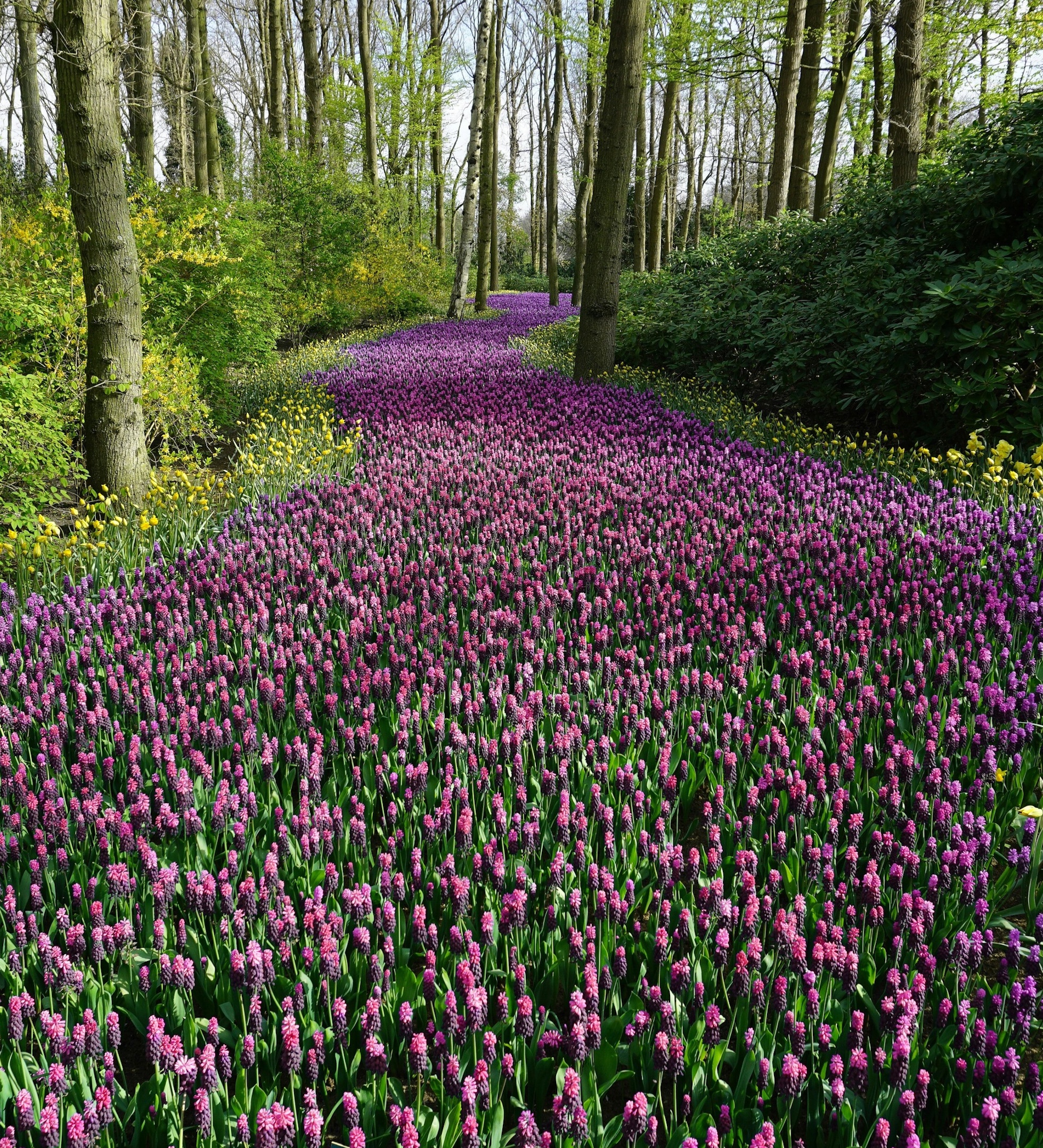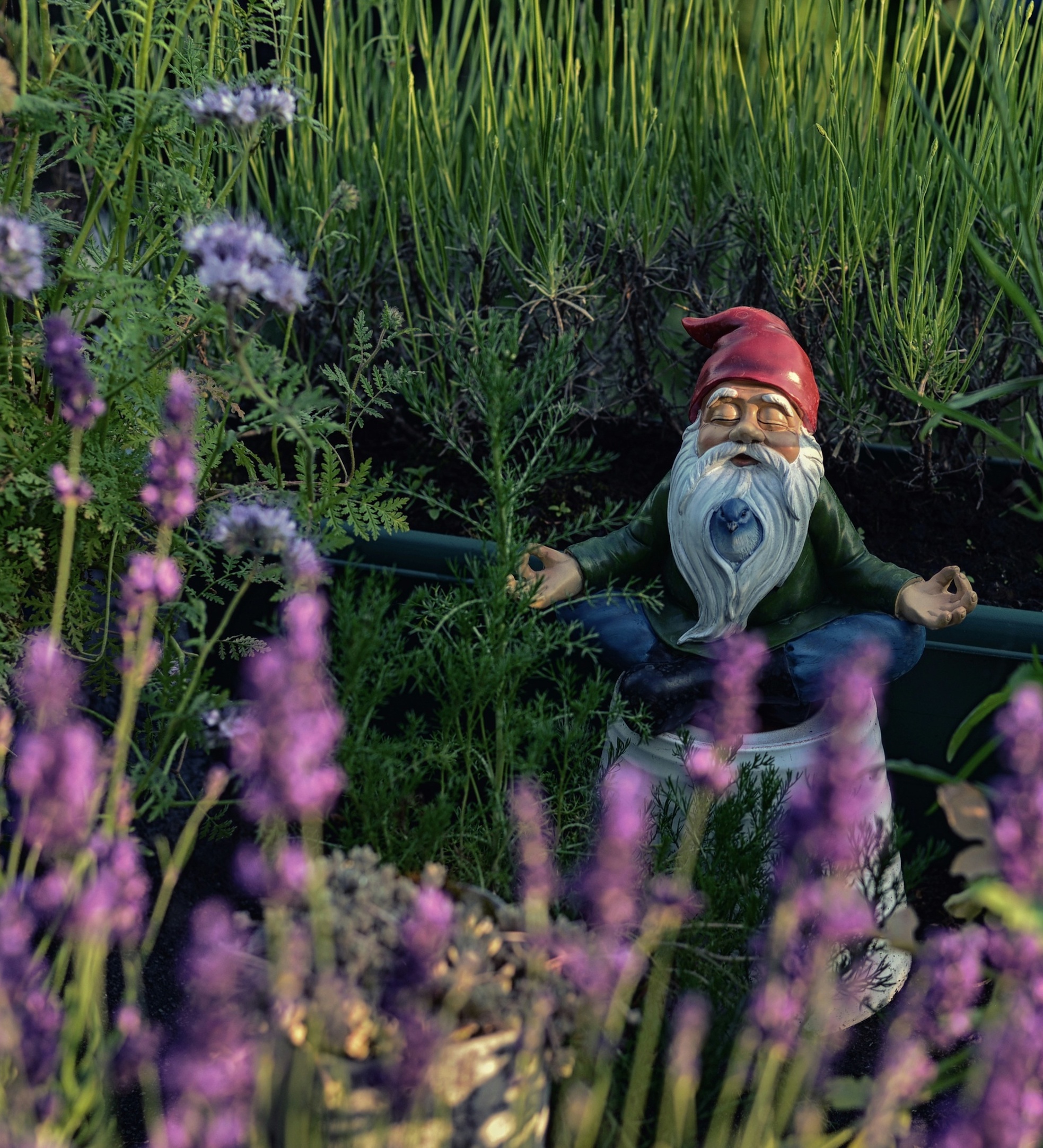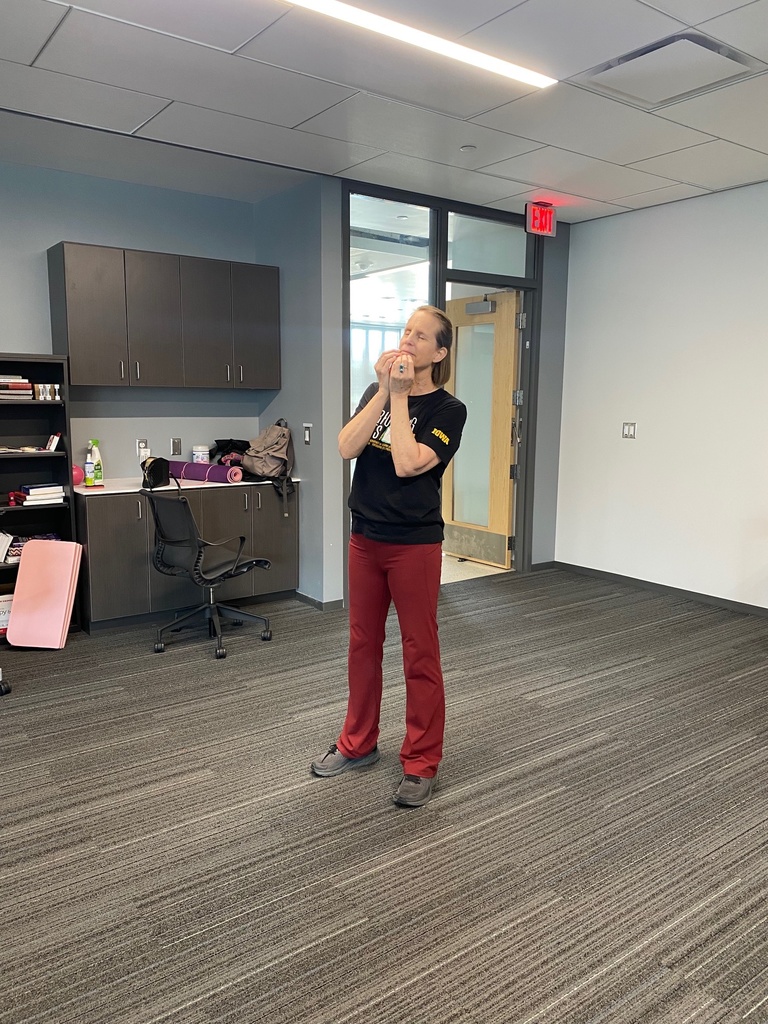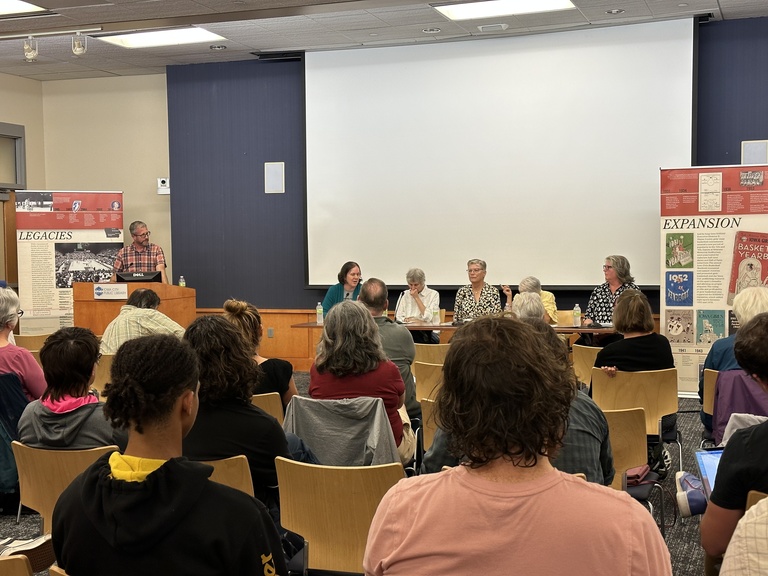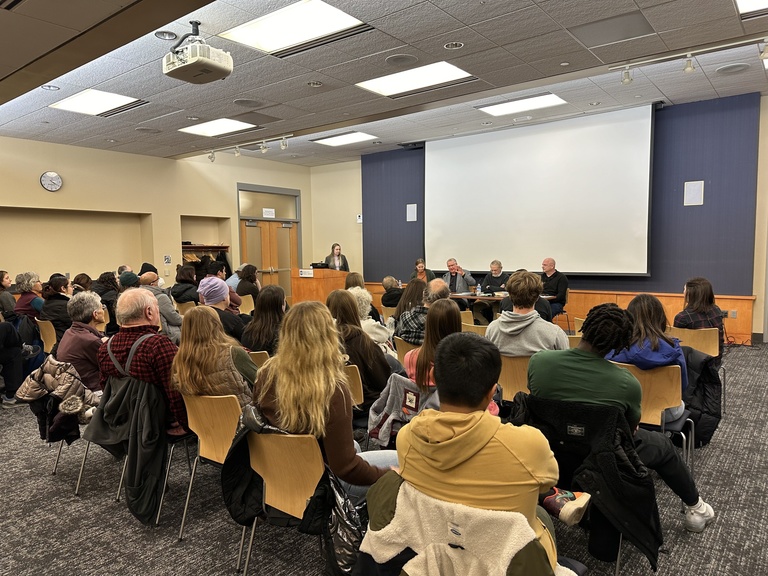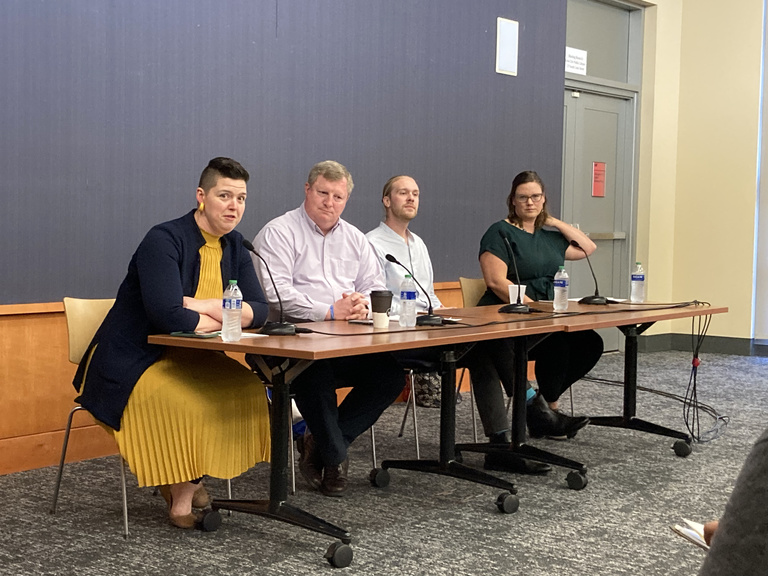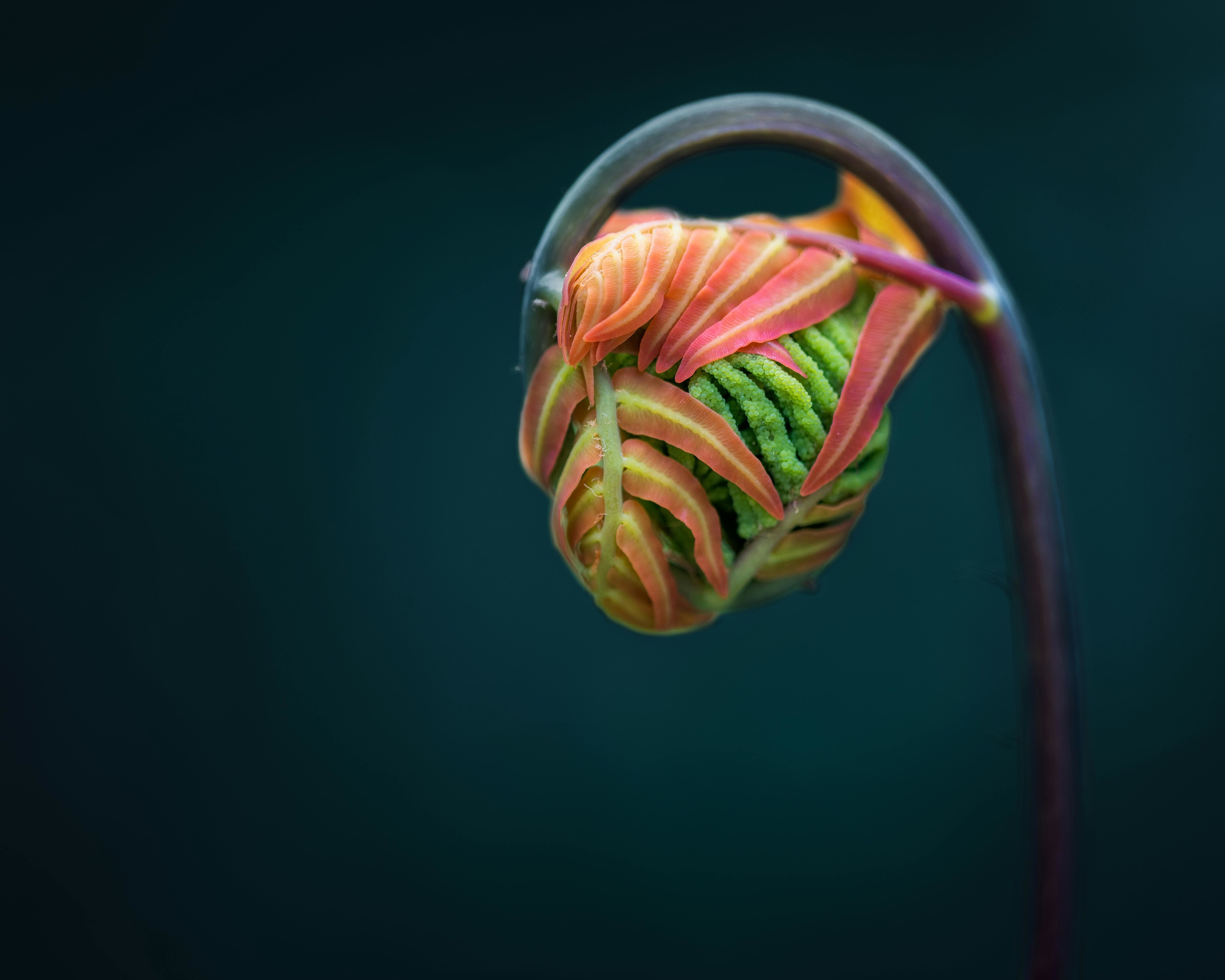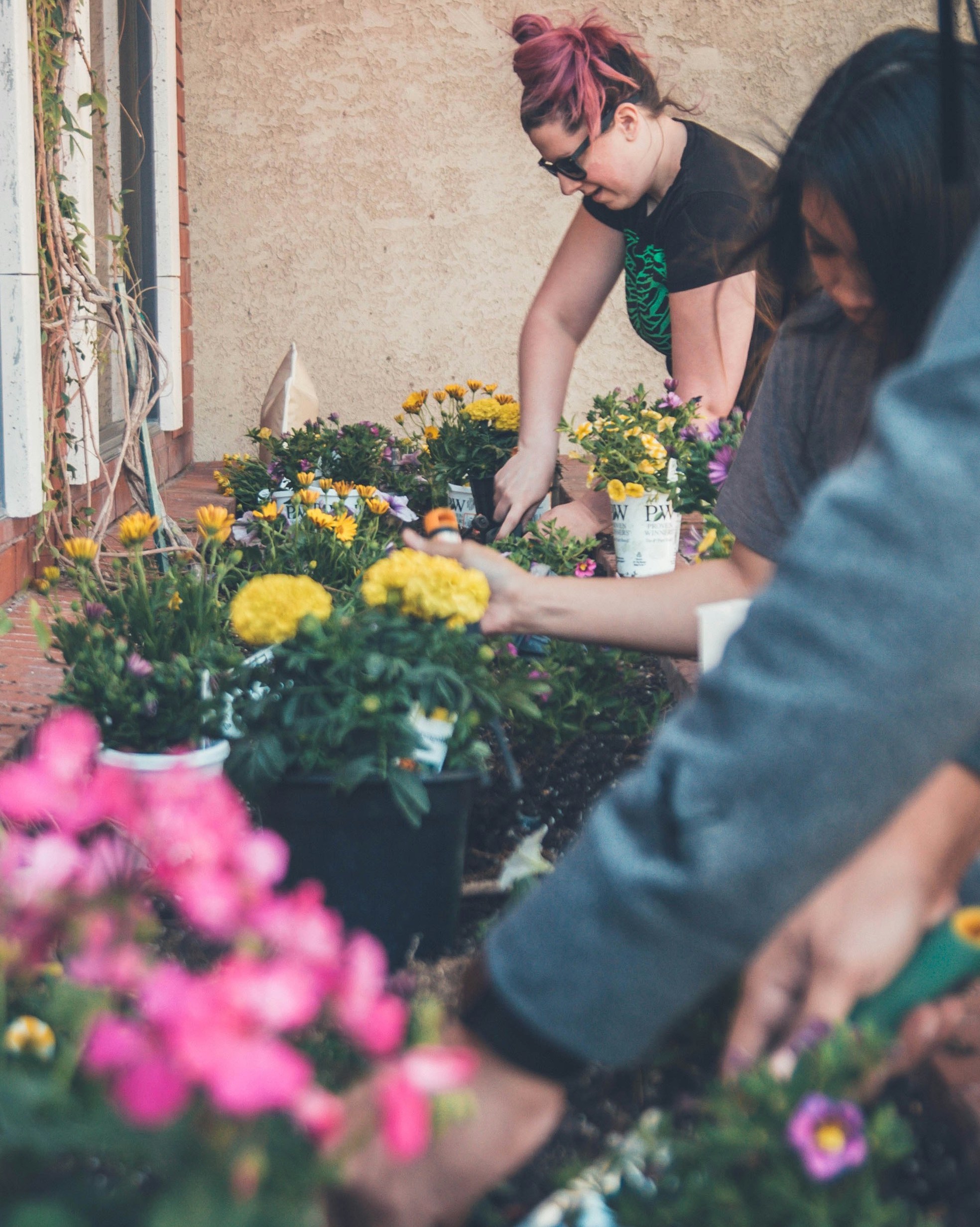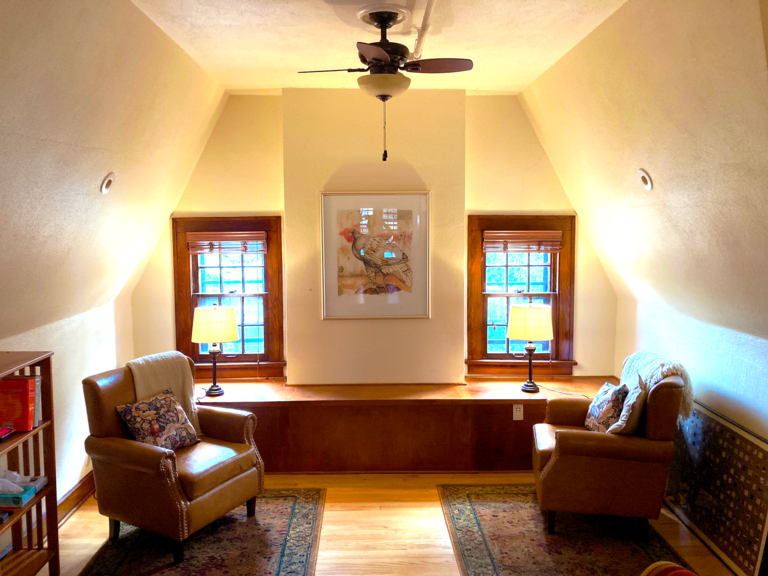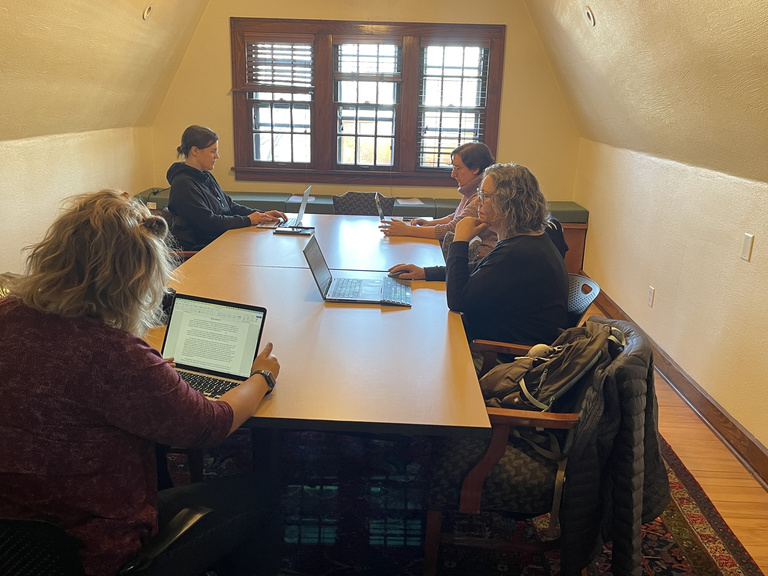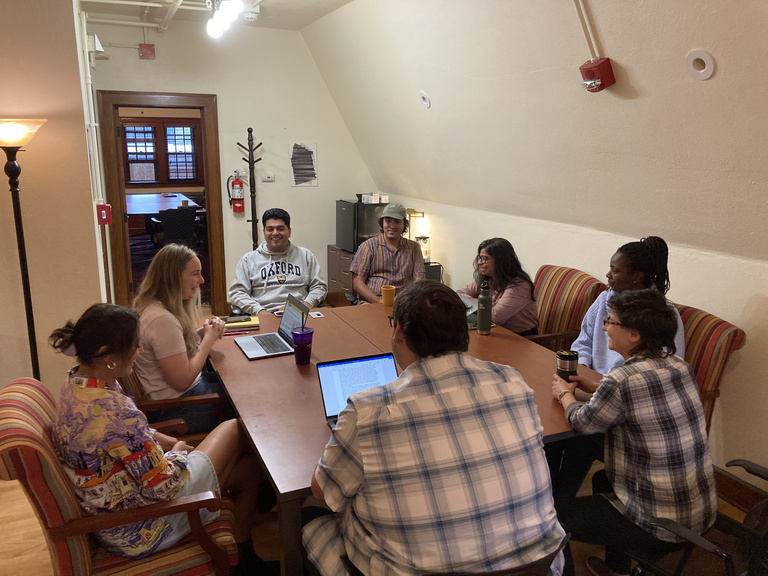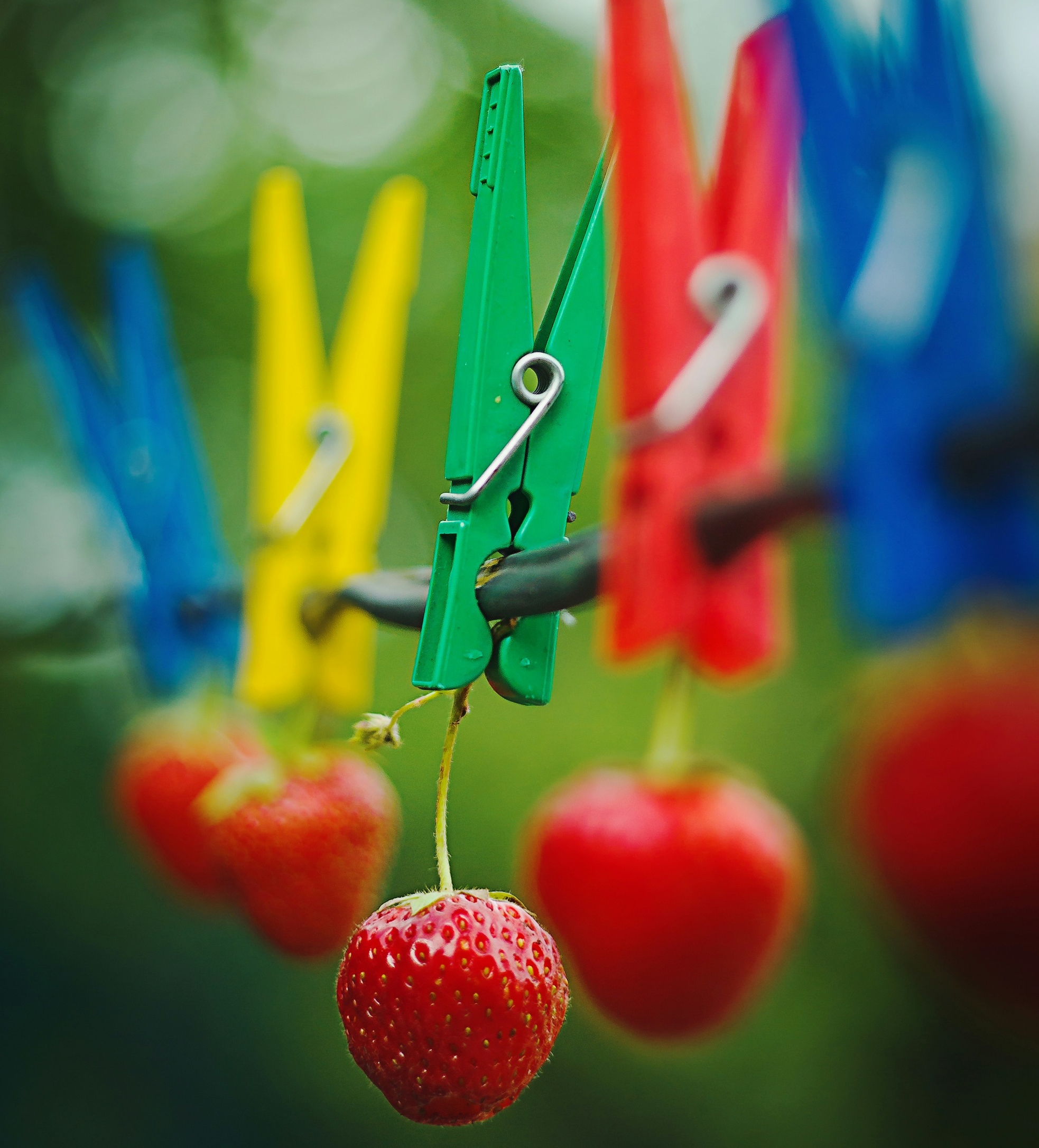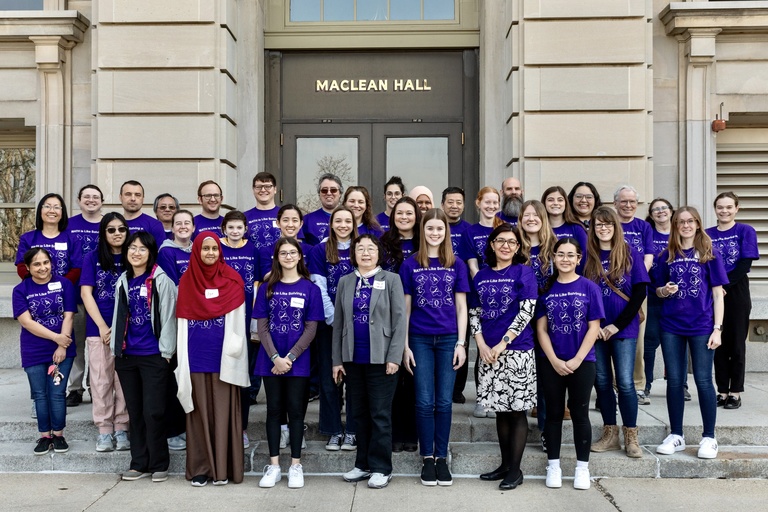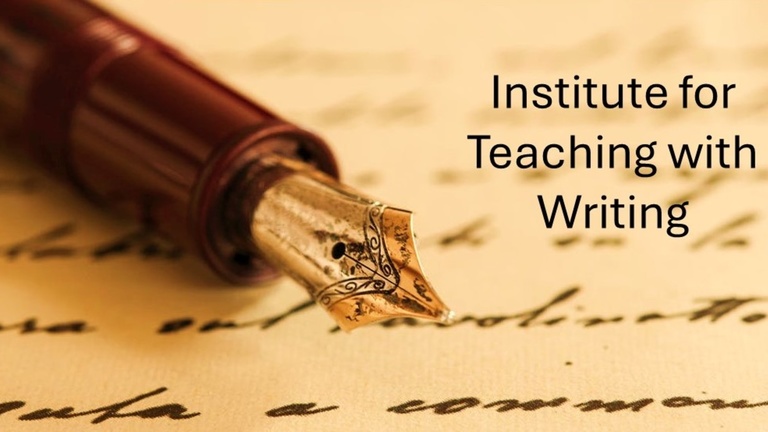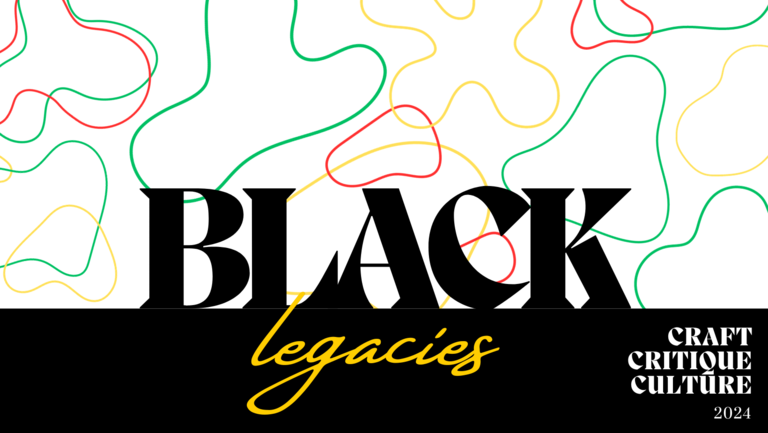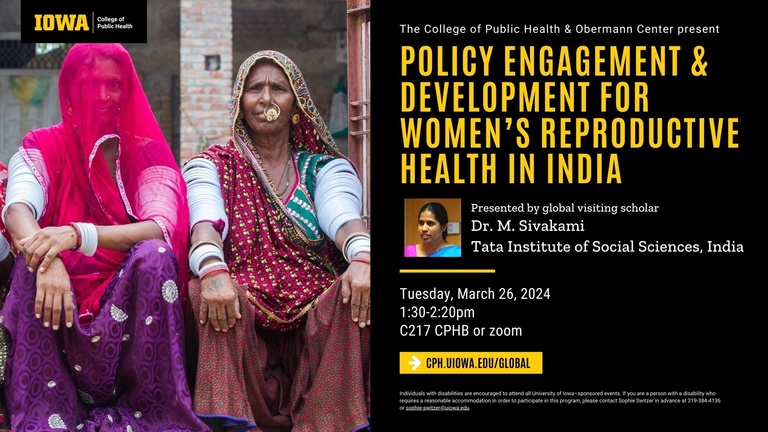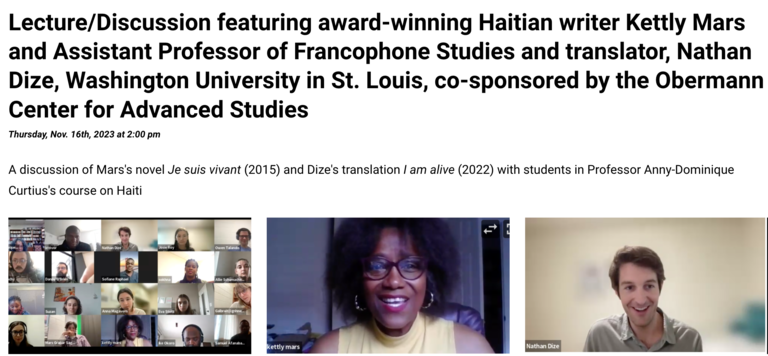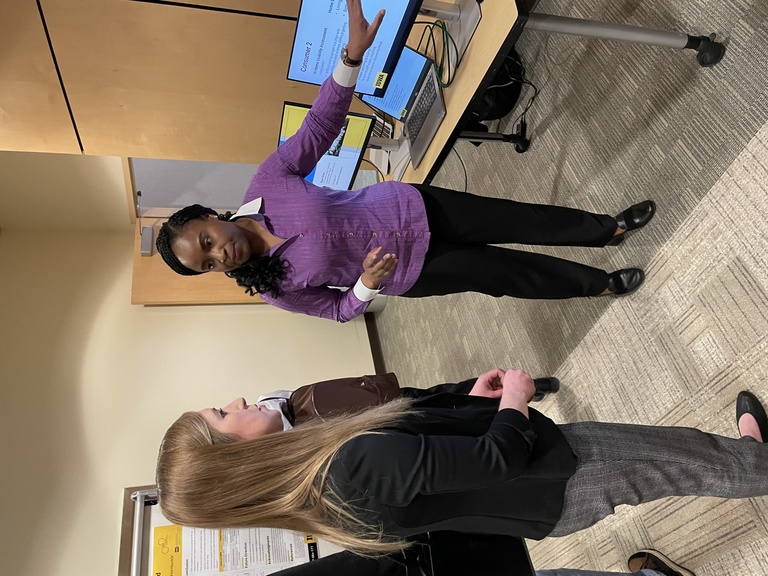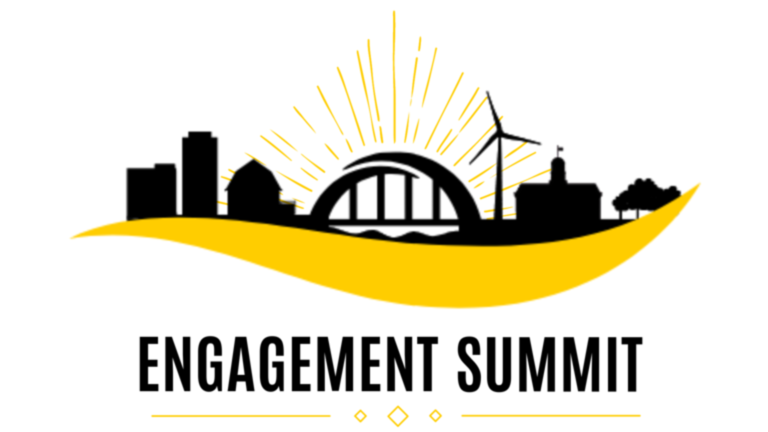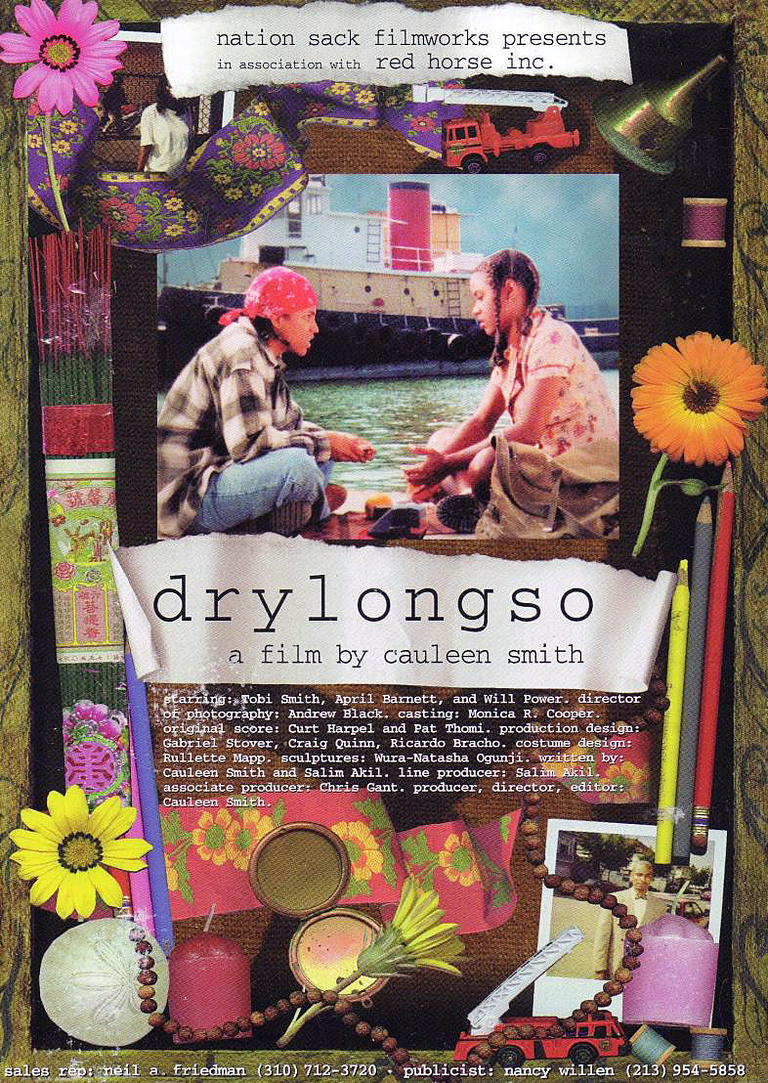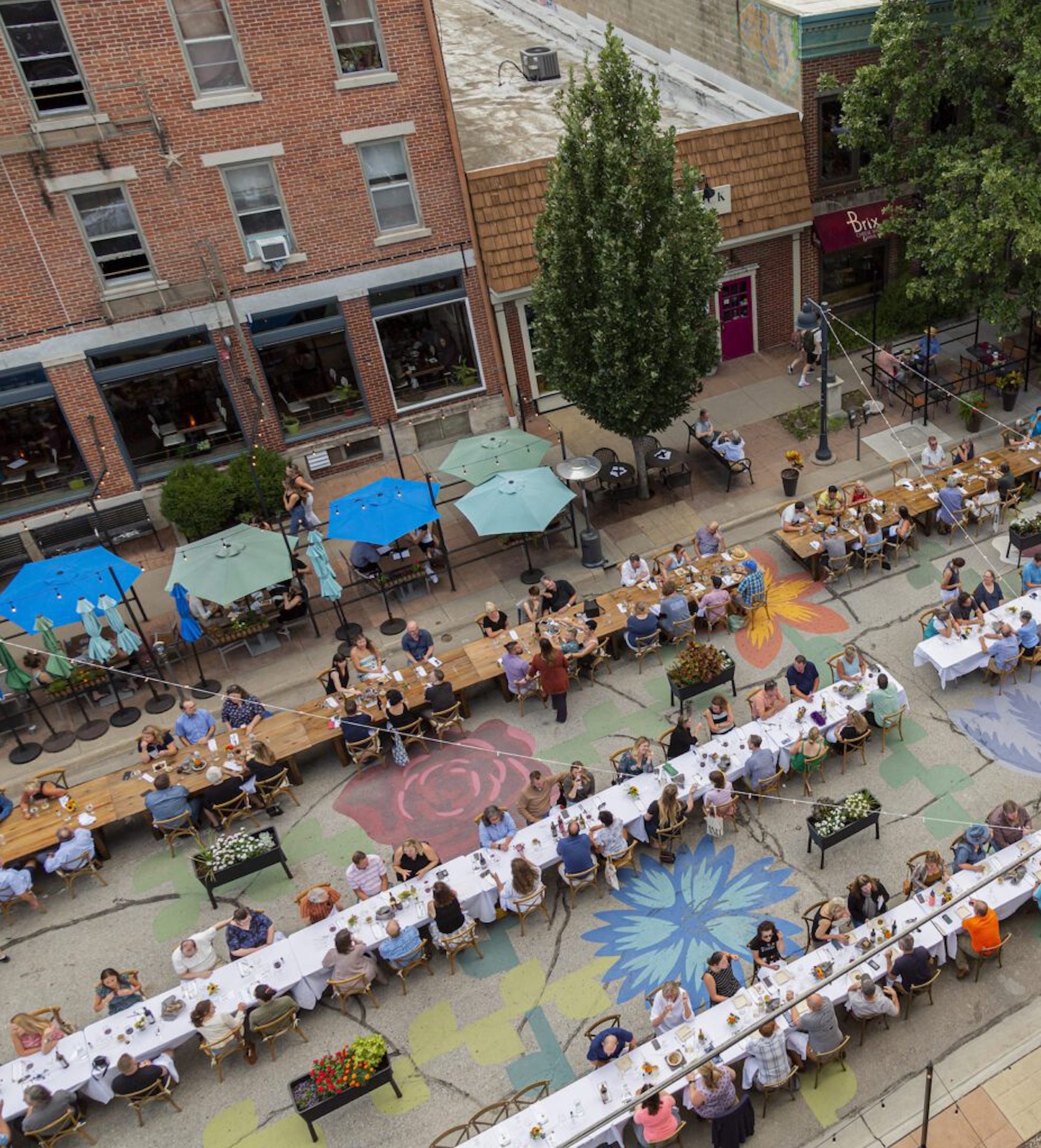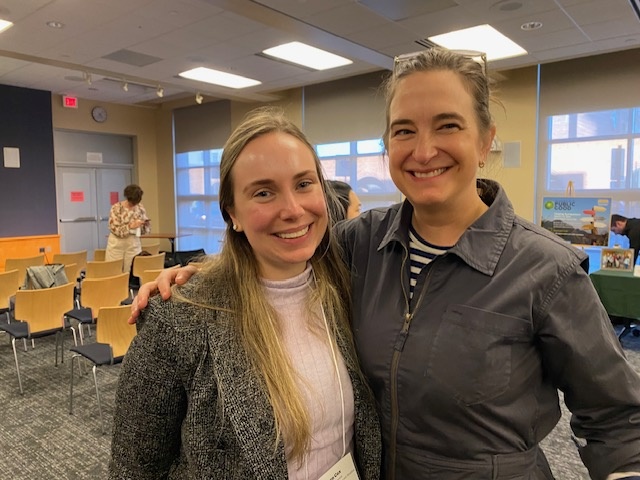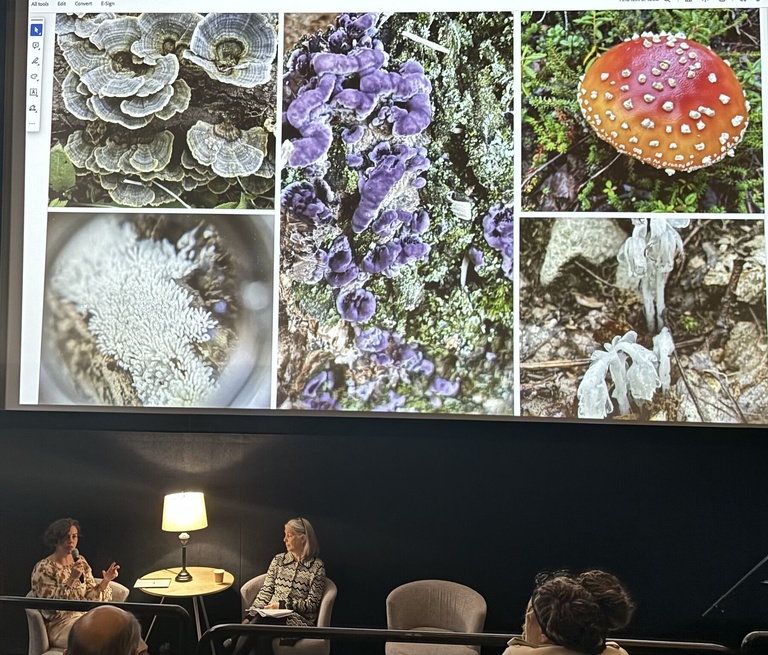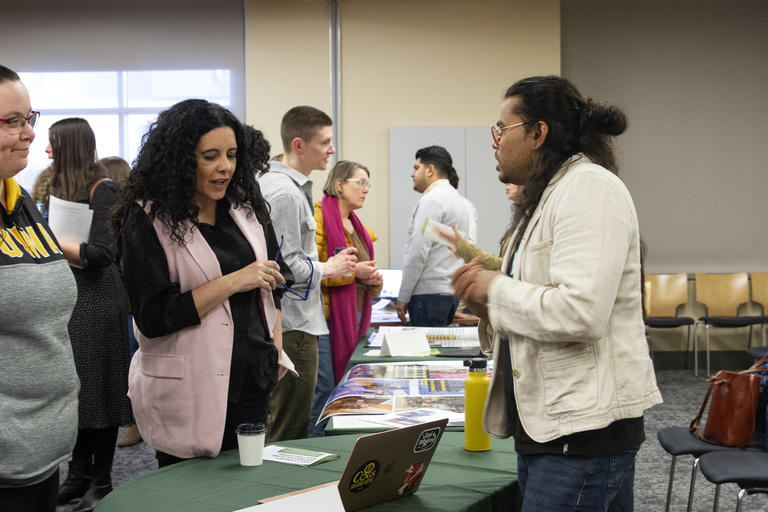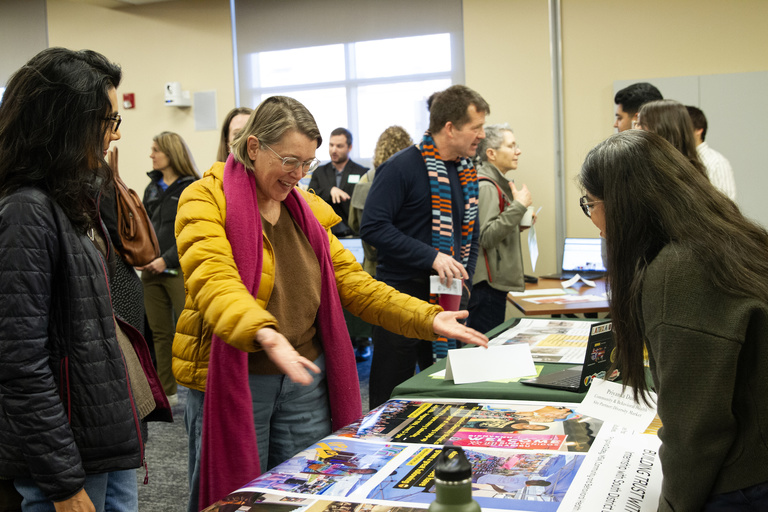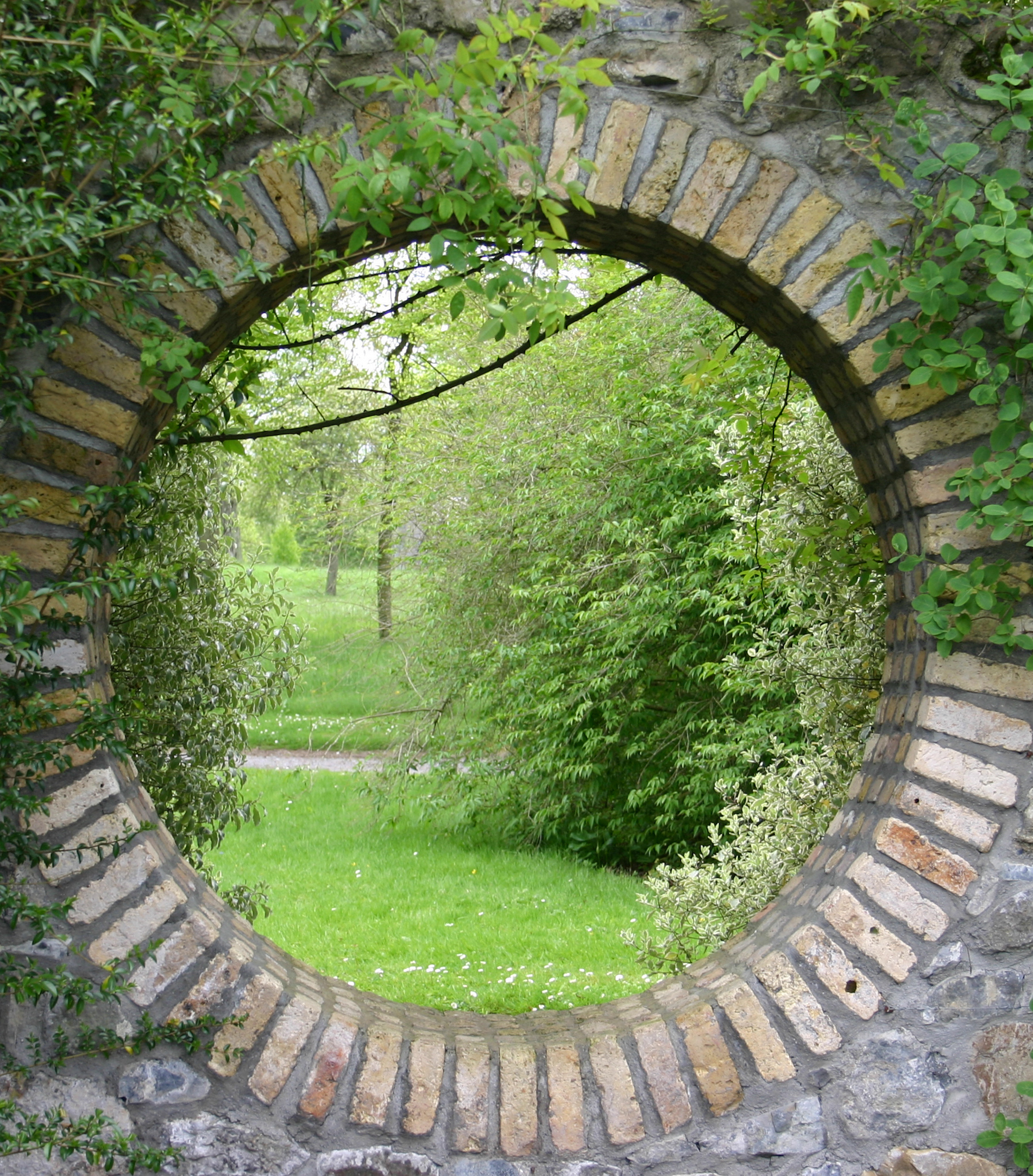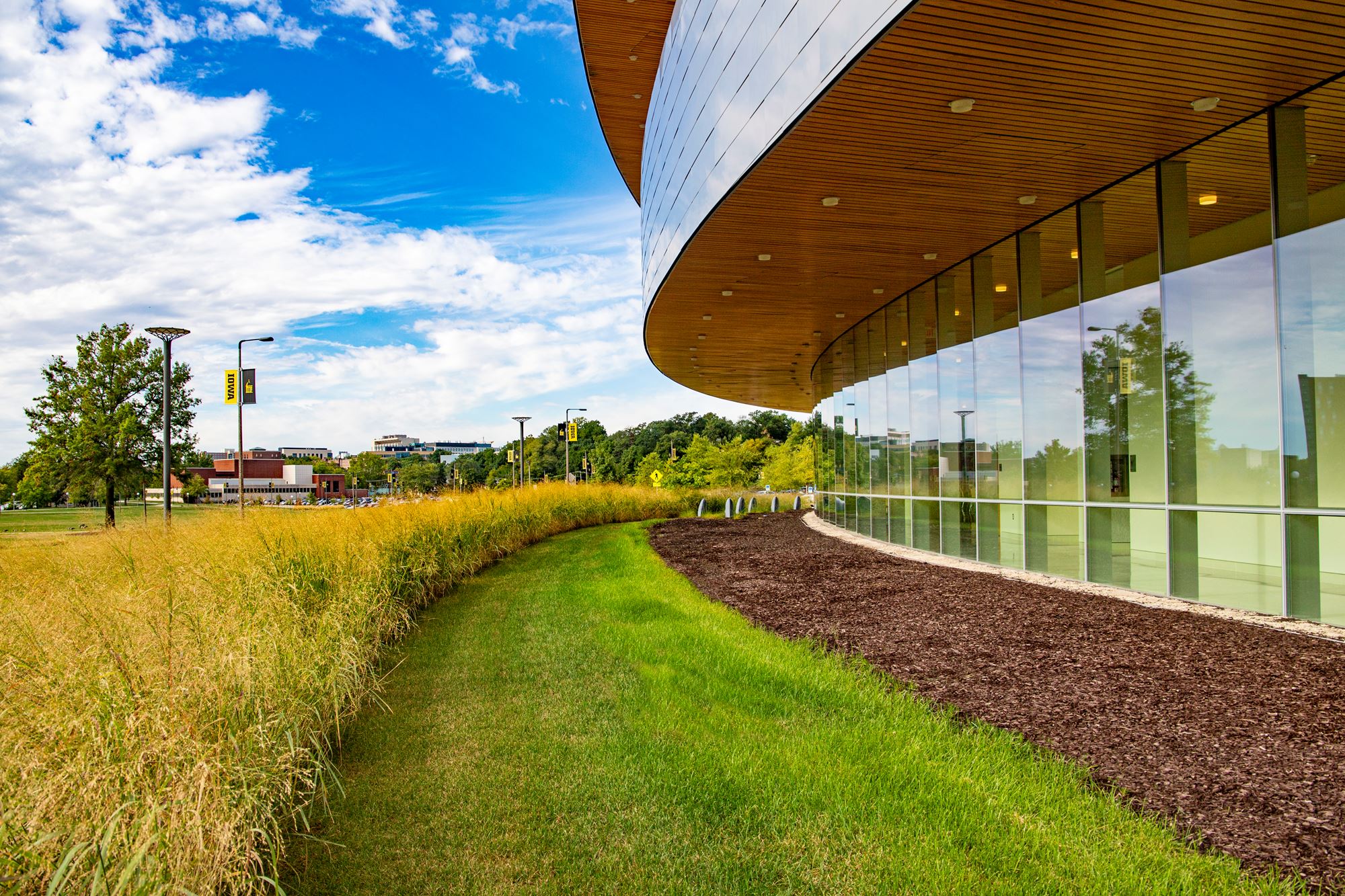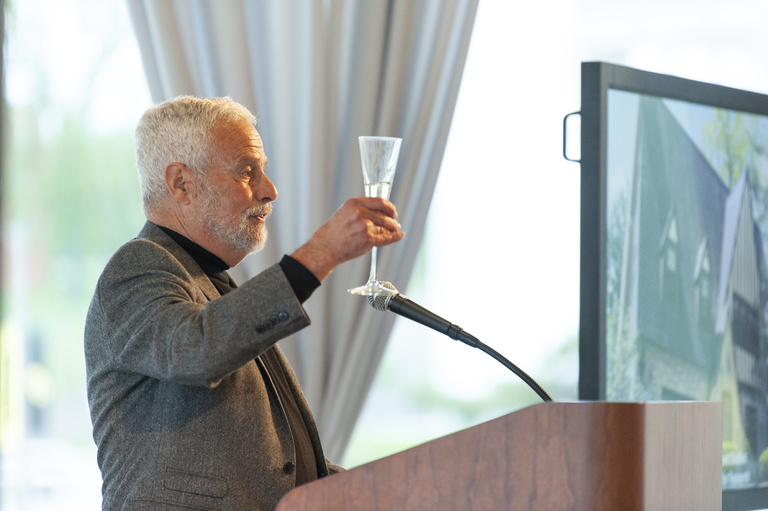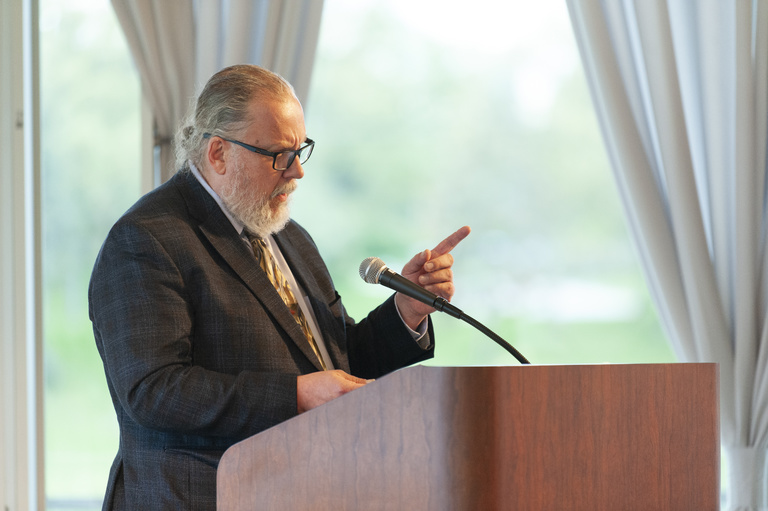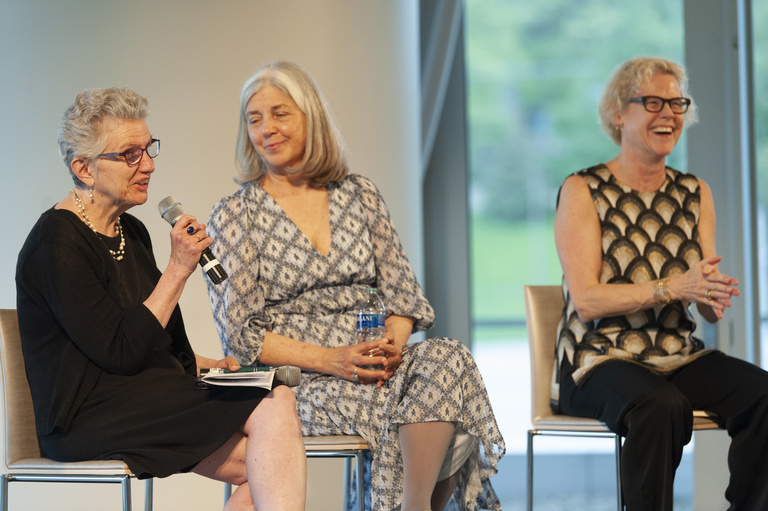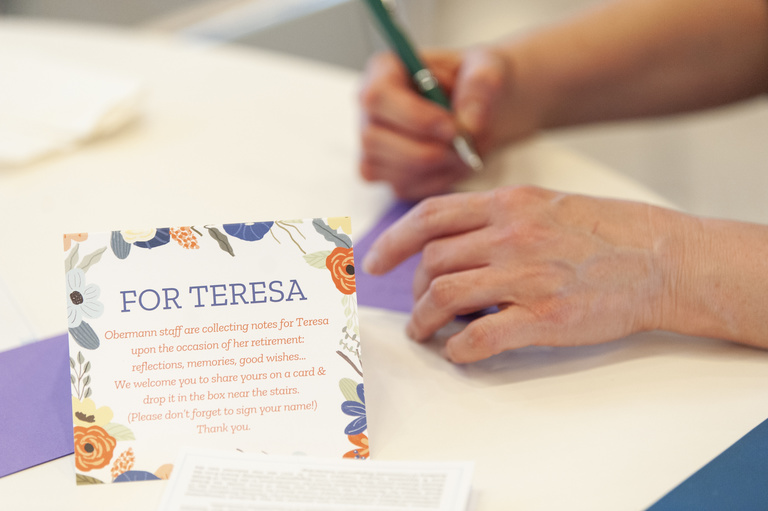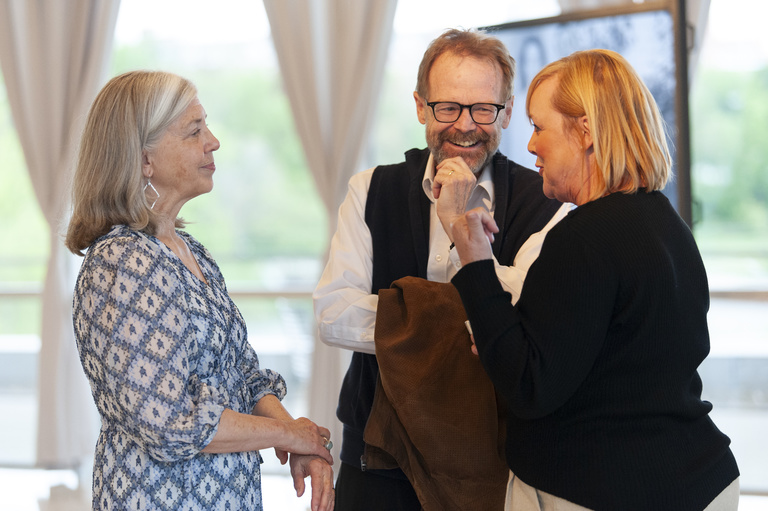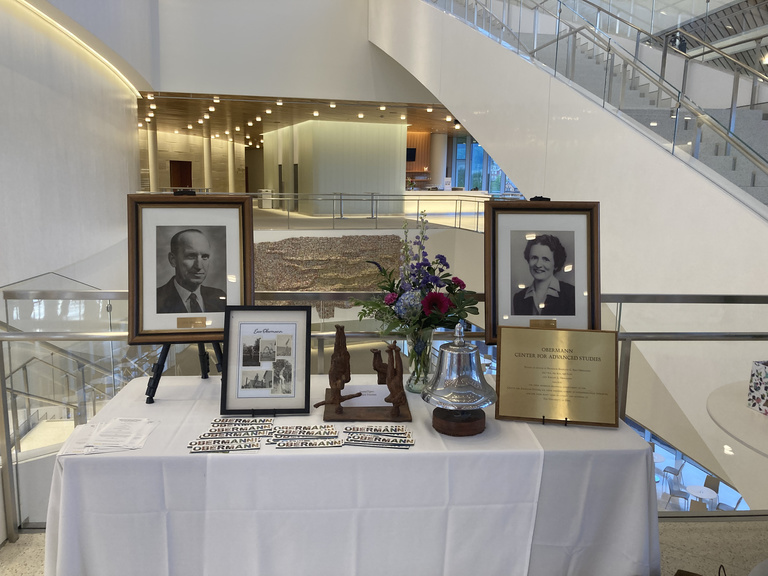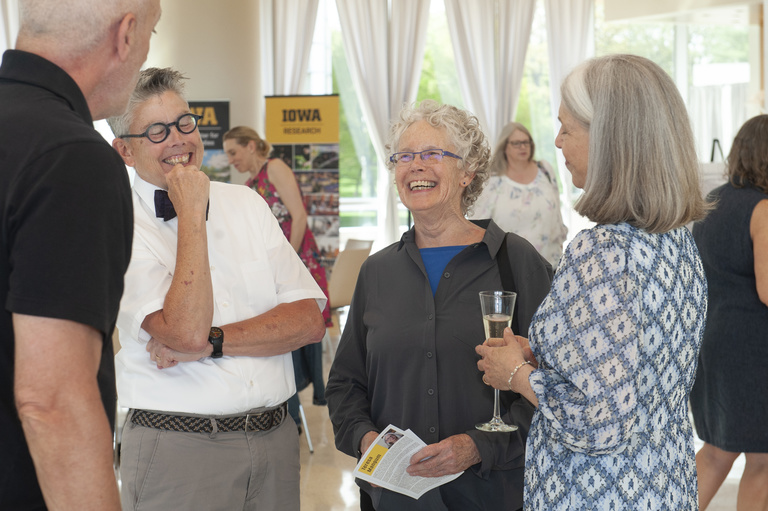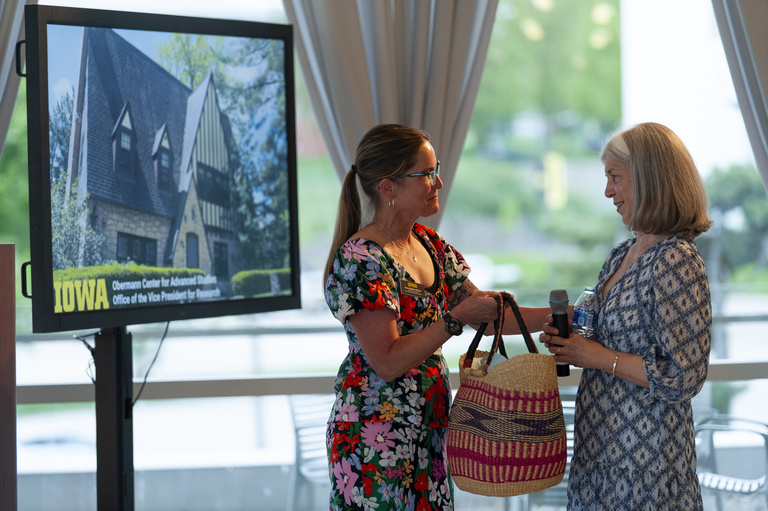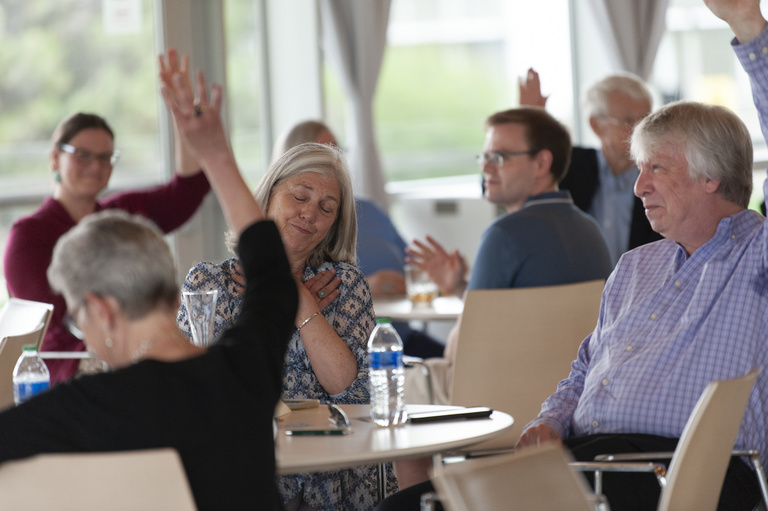Spacer
The Garden Underground
A reflection by Luis Martín-Estudillo
Tree Roots is one of Van Gogh’s final works. It’s anything but a conventional landscape—the knotted woods the Dutch master painted in blue are a gnarly labyrinth which may reflect some aspect of the troubled artist’s last days. Besides the dramatic circumstances around its creation, the image is a good reminder of the powerful, intricate worlds that sustain gardens. Most of us enjoy the greenery without ever considering the complex systems underneath. These hidden gardens are often much bigger than the visible parts, and many of their workings remain mysterious even for specialists. The rhizomatic universe under the beds of flowers and the trees that give us so much joy is at least as fascinating as the most elaborate landscaping in Kyoto or Versailles—and its functions just as essential for maintaining life.
During my first few weeks as the Director of the Obermann Center I have felt a similar sense of wonder as I discovered the intricacies of the immense work done not quite underground—thankfully, even though “the house” has a well-kept basement—but mostly out of sight by Lauren Cox, Erin Hackathorn, and Jenna Hammerich. Many of us at the University of Iowa have benefitted from the fruits of their labor without giving much thought to the varied efforts that make the Center’s programming possible. As in all great research institutions, what we accomplish at Iowa is sustained on a system that is as necessary as it is knotty: protocols, assurances, communications, funding…many are the things that must work seamlessly so that the University can deliver its mission. From my new corner at Church Street, where Teresa Mangum planted so many ideas, I have already had the privilege to observe directly what others can only intuit: the Obermann staff at work, whose discreet, unrelenting activity is absolutely essential for the Center to flourish. I feel extremely fortunate to join them, and I hope that together we’ll contribute to the growth of the Center’s fantastic reputation not only throughout the nation but also beyond the confines of our American soil. Please know that you have a standing invitation to stop by and find out more about what’s blossoming (in every season!) in this very special part of campus.
Spacer
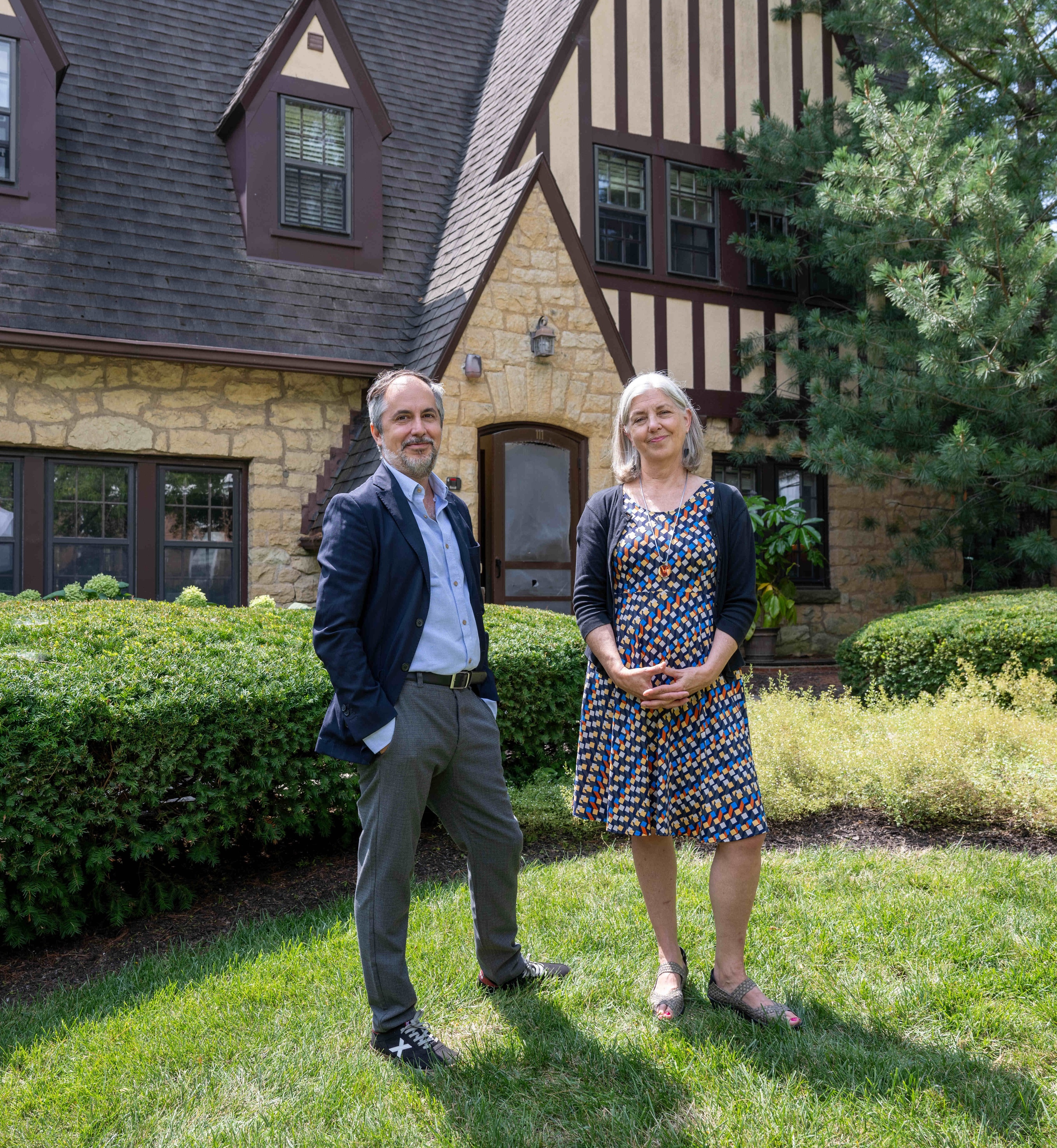
A Bountiful Harvest
A reflection by Teresa Mangum
Too often, research centers are pictured as private gardens, benefiting only the elite few within their walls. But a 2018 biodiversity audit conducted by archaeologists, historians, and ecologists for the world famous Great Dixter Gardens in Britain paints a very different reality. The researchers were startled to find that the dense plantings, stone walls, and scattered ponds of a formal garden—free from chemicals but actively cultivated—produced greater species diversity than open, untended lands of any kind. The key was thoughtful, intentional, responsive support of the garden and beings in it. Both the past year and the 45-year history of the Obermann Center demonstrate that this is what the Center does so well. This year the Center has supported fellows and beneficiaries of the Book Ends program, interdisciplinary teams and working groups, buzzing workshops and Mellon-funded experiments. Working alone and together, artists, scholars, and scientists created a bountiful harvest, at once nourishing and beautiful.
This garden is tended carefully by the wonderful Obermann staff—Lauren Cox, Erin Hackathorn, Jenna Hammerich—and enriched by the Office of the Vice President for Research and our many campus and community partners. All of you also play an incredibly important role when you support the work of the Center through your generous donations.
I’m grateful for the Great Dixter study because it confirms—by analogy—my longtime sense that the discoveries and collaborations that take root at the Obermann Center draw together a diverse, symbiotic community. I’ve long loved William Butler Yeats’s “The Lake Isle of Innisfree.” The speaker in the poem copes with the demands of daily life by dreaming of the “bee-loud glade” one can create by the simple yet miraculous act of growing rows of beans. Tending the Obermann “glade” for over a decade has been an incredible joy. I’m grateful to be leaving such a verdant, evolving, and welcoming garden in good hands.
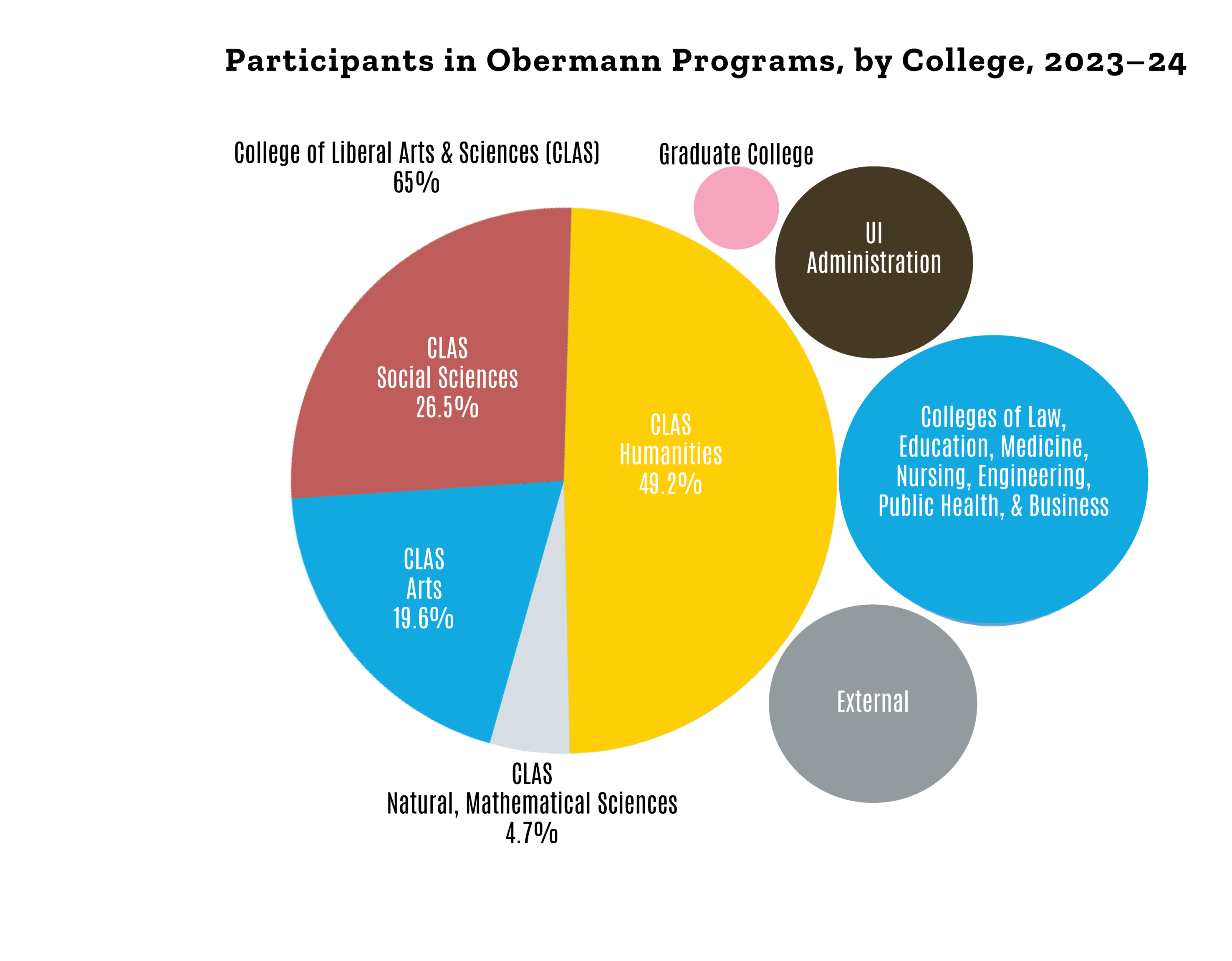
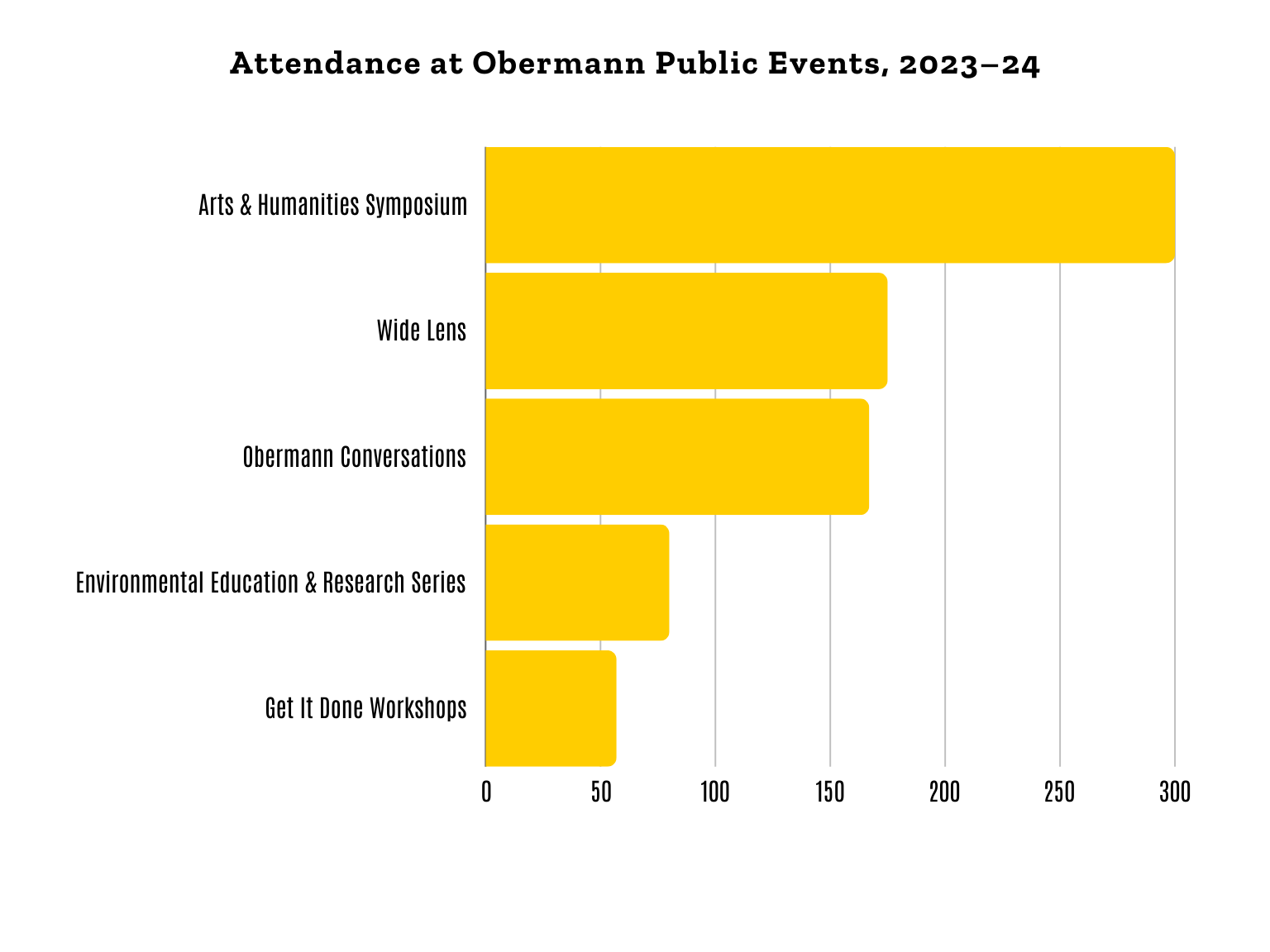
Wide Lens
This series—a joint initiative of the UI College of Liberal Arts & Sciences, the Obermann Center for Advanced Studies, the Office of the Vice President for Research, and the Stanley Museum of Art—features faculty from across the UI sharing their research on a particular topic with the local and campus community.
We hosted two Wide Lens events this year—one on artificial intelligence and one on climate. Sixteen artists, scholars, and researchers from across campus—including the College of Engineering, the College of Liberal Arts & Sciences, the College of Law, and the Carver College of Medicine—shared rapid-fire, pecha kucha versions of their research with a public audience.
175
Obermann Working Groups
Obermann Working Groups enrich members’ research-in-progress, connecting them with cutting-edge developments in the arts, humanities, social sciences, and health and natural sciences. Cross-disciplinary research led to co-designed courses, articles, grants, and speaker series.
We're delighted to report the following outcomes from last year's groups:
- At President Wilson's request, the Facilitating Difficult Dialogues Working Group planned and launched the Civic Dialogue Initiative pilot to train RAs to deliver civic dialogue skill building to first year students and assess the results.
- Leaders at the Stanley Museum of Art, galvanized by discussion within the Museum Futures Working Group, restituted two objects, a brass plaque and a wooden altarpiece, to the Oba of Benin, Africa.
- Mary Mayo of the Decolonizing the Classroom Working Group received an Ida Beam to bring Dr. Tawnya Pettiford-Wates to the UI to work with the cast of the Theatre Arts' fall production of Macbeth. May writes, "The work she did with the students was such a success that we are bringing four members of the Ritual Poetic Drama Institute back to work with Theatre Arts faculty and students. The[ir] summer residency will focus on methods for embracing diversity and integrating deeper cultural representation in the life of the department. Dr. Pettiford-Wates will return this fall to direct For Colored Girls Who Have Considered Suicide/When the Rainbow Isn't Enuf."
- Relationships developed within the Jewish Studies Working Group led members to launch a new UI course, Rapid Response History (HIST:1166:0001). In Spring 2024, students in the course explored the background and implications of the war in Gaza.
- The Chinese Humanities & Arts Workshop Working Group members published two journal articles, three book chapters, one book manuscript, and presented at three conferences.
- The Algorithms and Culture Research Working Group published "Beyond ‘lulz’ and ‘keyboard warriors’: Exploring the relationship between trolling and radicalization" in Information, Communication & Society.
200+
26

"As a new hire last year, the Obermann Working Group was and remains a space that is nourishing for me navigating teaching in a new community/institution. It provides structure (texts and time together) for engaging deeply with colleagues about inclusive, anti-racist pedagogy and sharing questions, challenges, resources, and discoveries that are emerging in real time in our classrooms.”

"While our group has evolved and grown over time, we are rooted in our origin story as an Obermann Working Group that sought to bring together people around campus interested in discussing research on algorithms. Retaining our association with the Obermann Center has been important for ensuring our continued commitment to the humanities and interdisciplinary research."

"I deeply value the Circulating Cultures working group as a community of humanities scholars engaging with compelling recent postcolonial and anti-capitalist publications that speak to our current moment. At present, I tend to read only scholarship related to my current book project, so participating in this group has broadened my reading and helped me be more aware of my positionality."
Obermann Arts & Humanities Symposium
Sports, Power, and Resistance: Legacies and Futures—organized by Thomas Oates (American Studies and School of Journalism & Mass Communication, CLAS) and Travis Vogan (Journalism & Mass Communication and American Studies, CLAS)—featured leading scholars of history, sociology, cinema and media studies, rhetoric, and cultural studies. They asked, How can the history of activism in sports help us understand the dynamics shaping conflicts today? How might labor relations in sport be imagined differently? How does the structure of sporting entertainment provide opportunities and obstacles to activism, and how can activists navigate these challenges? Together, they mapped the past, explored the present, and charted future paths in the contested terrain of sports as a political force.
300+

"Working with the staff at Obermann has been a joy. Their expertise at logistics allowed me and my co-organizer to focus on the intellectual side of the symposium, knowing that the details of flights, lodging, dinners and other concerns would be taken care of. Our guests remarked on the extraordinary hospitality they enjoyed during their stay. The staff at Obermann are meticulously organized, prompt and communicative. We wanted our guests to enjoy their time at Iowa and to leave with a good impression of the university. The expertise and care of the staff ensured that outcome, and I am very grateful to them for representing the best of this institution."
Interdisciplinary, Experiential Environmental Education and Research
This Spring 2024 series, co-sponsored by the Office of the Vice President for Research, invited campus artists, humanities scholars, and researchers in the sciences and social sciences to imagine the many ways that our campus and connected spaces might serve as a living laboratory for environmental research. Six teams comprised faculty and administrators from the Colleges of Liberal Arts and Sciences, Education, Engineering, Law, Public Health, and the Graduate College. We reached out to a wide group of stakeholders, including UI campus planner Adele Vanarsdale and campus arborist Andy Dahl. The teams' projects included developing remote sensing strategies for testing air and water; creating an indigo garden for artists to experiment with traditional and Indigenous dyes in printmaking; and collaborating with the Johnson County Poor Farm to create a regenerative environment.
We hosted a day of consultations with two leaders in place-based collaborative environmental research. Kathleen Socolofsky, Assistant Vice Chancellor and Director of the UC Davis Arboretum and Public Garden, and Bethany Wiggin, Professor at the University of Pennsylvania and Founding Director of the Program in Environmental Humanities, My Climate Story, and Ecotopian Toolkit, met with each team. Socolofsky and Wiggin then delivered public lectures to model possibilities for interdisciplinary collaborative research using the Living Lab model (attendance: 30).
On April 12, Lesley-Ann Noel, professor of justice-focused design at North Carolina State University, shared her research at a Prairie Lights book event (attendance: 50), then designed and led the daylong Design Workshop for Environmental Studies Cross-Disciplinary Collaboration for the six groups, encouraging them to build ways to engage often overlooked communities and accessibility into the research design of their projects.
23 faculty & staff from 14 disciplines

"The Environmental Design Workshop provided the necessary space for our team discuss our project in welcoming collegial atmosphere. Professors Teresa Mangum and Leslie-Ann Noel's leadership, intelligence and work ethic contributed to a workshop that was an exemplar of academic collaboration and community engagement. The workshop afforded our team the time and space to think creatively and boldly about the myriad challenges of constructing living laboratories with unique research opportunities on the UI campus."

"This widely interdisciplinary research team would not have come together without the invitation to submit proposals for this workshop. Spanning the College of Engineering and CLAS, our team has now committed to both a short-term performance and to long-term relationships that will include applying for internal and external funding for a multi-year project. Personally, this interdisciplinary and collaborative work will be a cornerstone of my research profile moving forward. This collaboration is intensely energizing, and I am discovering valuable avant-garde methods through this partnership."
Interdisciplinary Research Grants
In Summer 2024, Obermann funded three interdisciplinary research groups whose projects encompassed arts, humanities, and medical science: one group wrote a television series based on Anton Chekhov and Olga Knipper's relationship; another created a dance theater production that examines contemporary motherhood and the hidden wounds of infertility and miscarriage; and another studied the influence of social support on diet-related improvements in the fatigue, quality of life, and mental health of individuals with multiple sclerosis and the well-being of their support partners.
We also recognized the achievements of two past interdisciplinary research groups:
- Micah Bateman, co-director of the Building Public Humanities Ecologies for Critical Computing in LIS Summer 2021 IDRG project (with Lindsay Mattock and Benjamin Devane), received an OVPR Community Engaged Scholars Grant and developed the new Community Archives course (SLIS:5400), set to launch in Spring 2025.
- Ruinous Gods: Suites for Sleeping Children—an opera developed as part of a Summer 2023 IDRG project directed by Lisa Schlesinger (Theatre Arts) and Layale Chaker—premiered at the Spoleto Festival USA in May 2024, featuring Grammy award–winner Karim Sulayman. The play is about displaced children with resignation syndrome, a rare trauma response to the state of living in displacement. Schlesinger's previous IDRG project, Iphigenia Point Blank: The Story of a Refugee, also premiered at Sheen Center for Thought and Culture in New York City on December 5, 2023.

"Our two weeks at the OCAS were remarkably productive. We started and completed the screenplay for the Anton and Olga television pilot; we also mapped out the rest of the episodes for what we think will be a limited series. I can speak for both of us when I say that the OCAS support and space were crucial to the work we did. We are so grateful for the time, writing mojo, and logistical magic you supplied!"
Faculty Fellows
This year's fellows:
- Matthew Brown, English (CLAS) and Center for the Book (Graduate College) — co-funded thanks to the generosity of Professor Emerita Kathleen Diffley
- Armando Duarte, Dance and Latin American Studies (CLAS)
- Daniel Fine, Theatre Arts and Dance (CLAS)
- Becky Gonzalez, Spanish & Portuguese and Linguistics (CLAS)
- Tong Li, Mathematics (CLAS)
Congratulations to previous fellows who completed work begun at Obermann, including David Cassels Johnson, Rodica Curtu, Sarah Kyle, Michael E. Moore, and Margaret Beck.

"My semester as a Fellow was a great opportunity to consider the big-picture contributions and purpose of my research as I shared and discussed my current projects with scholars outside my field. It forced me to critically consider how our work can best be communicated to others, which is a really important skill set as public-facing research becomes more valued. It was also extremely valuable to learn from scholars who are more advanced in their careers and from other units across the College."

"The seminar activities were fun, engaging, and productive; I consider them crucial to my development as a scholar. In addition, the Fellow’s research seminar meetings kept me on par and up to date with my goals."
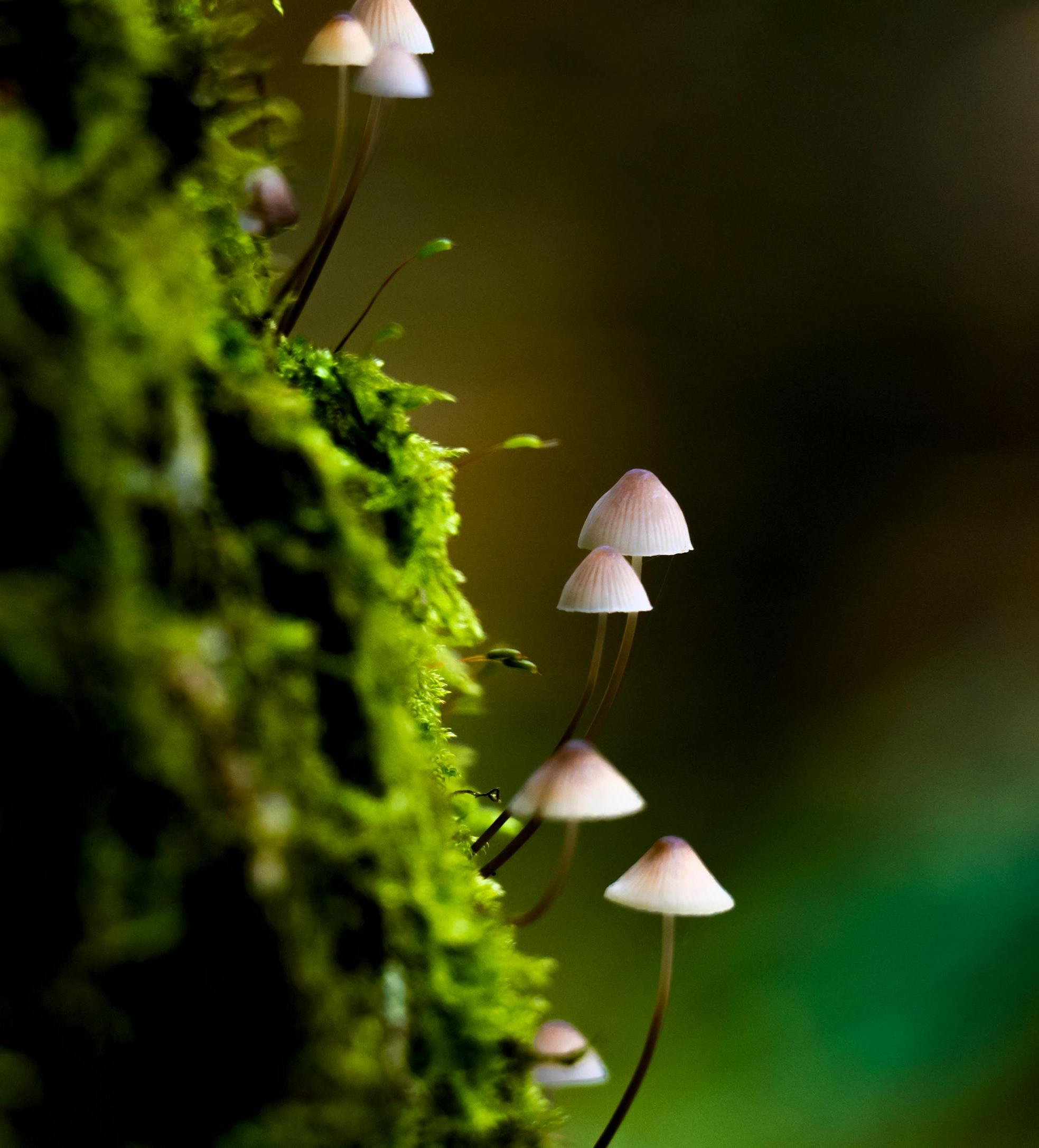
Conversations & Workshops
One profound impact of the Obermann Center comes from our energetic convening of individuals, communities, and units. Together, we expand perspectives on complex ideas, challenges, and possibilities. To note just a few 2023–24 examples—
Obermann Conversations:
- Women’s Basketball in Iowa: From 6-on-6 to NCAA | 42 attendees
- Scrutinizing the Shelves: Banned Books | 35 attendees
- Labor Strikes — 60 attendees
- Imagining Community in 2030 — 30 attendees
Workshops:
- Get It Done — Creating Engaging Event Communication Plans | 7 attendees
- Get It Done — Get Concrete about Abstracts | 18 attendees
- Get It Done — Be On Point with PowerPoint | 32 attendees
- What She Said — A Workshop on Empowering Women’s Voices in Celebration of Women’s History Month | 20 faculty, staff, and graduate student participants

"I can always count on the Obermann Center to help me connect with colleagues from all across campus and to inspire me to think about a topic in a new way. In this event, the facilitators guided participants through an empowering range of practices from the world of theatre to help us develop body awareness and intentionality in the ways that we use our voices to express ideas on campus and beyond."
Writing Initiatives
Book Ends: Obermann/OVPR Book Completion Workshop
Co-sponsored by Obermann and the Office of the Vice President for Research, the workshop helps UI faculty turn strong manuscripts into field-changing books.
This year, Book Ends awards went to—
- Katy Ambrose (School of Music) for Horns, Hypocrisy, and History
- Mihailis Diamantis (College of Law) for Law and Philosophy of the Corporate Person
- Jose Fernandez (Latina/o/x Studies, Division of Interdisciplinary Programs) for Publishing Latinidad: Latinx Literary and Intellectual Production 1880–1960
- Jennifer Kayle (Dance, CLAS) for A Practical Philosophy of [ensemble dance] Improvisation
- Sarah Minor (English, CLAS) for The Listening Rooms
- Ana M. Rodriguez-Rodriguez (Spanish & Portuguese) for Muslim-Christian Encounters on the Edges of the Spanish Empire (1565–1898)
We also celebrate former awardee Brady G'sell (Gender, Women's & Sexuality Studies and Anthropology), who published Reworking Citizenship: Gender, Race, and Kinship in South Africa with Stanford University Press in August 2024.

"The Obermann Center's Book Ends workshop is an excellent resource for University of Iowa faculty looking to receive caring and constructive feedback on their book manuscripts. My experience during the Book Ends workshop exceeded my most optimistic expectations as I received thoughtful feedback and specific suggestions for revision by a group of generous scholars both within and outside of the university. As a result of my participation in the workshop, my manuscript improved considerably, and I was able to grow as a writer and scholar."
Obermann Writing Collective
This new program offered companionship and accountability to University of Iowa artists, scholars, and researchers working on any kind of academic writing project who wanted dedicated time, a cozy space, and a community for the practice of writing. In Fall 2023 and Spring 2024, we offered three write-on-site groups: one for UI faculty, one for UI graduate students, and one for anyone in the UI academic community. (Summer 2024 groups were open to all.) The groups met once per week for one and a half hours in the Obermann Center's newly configured "Writers' Attic." Writing sessions included brief check-ins, goal setting, and sustained writing time, along with warm appreciation and support for the demanding work of scholarly writing.
Group members worked on a wide range of projects: journal articles, dissertations, MFA theses, grant proposals, conference abstracts, book chapters, PhD comprehensive exams, and memoirs.
2023–24 group leaders: Lauren Cox, Kaity Lindgren-Hansen, Teresa Mangum, Kath Shaughnessy, and Ellie White.
32

“Finding time in the week to write, especially when busy with teaching and other responsibilities, is incredibly hard, and the writing group helped immensely getting me into a regular writing rhythm, both during and outside our weekly meetings, which markedly increased my productivity throughout the semester. I wish I’d had this even earlier in my dissertation process and can’t recommend it enough for those getting started on major writing projects.”
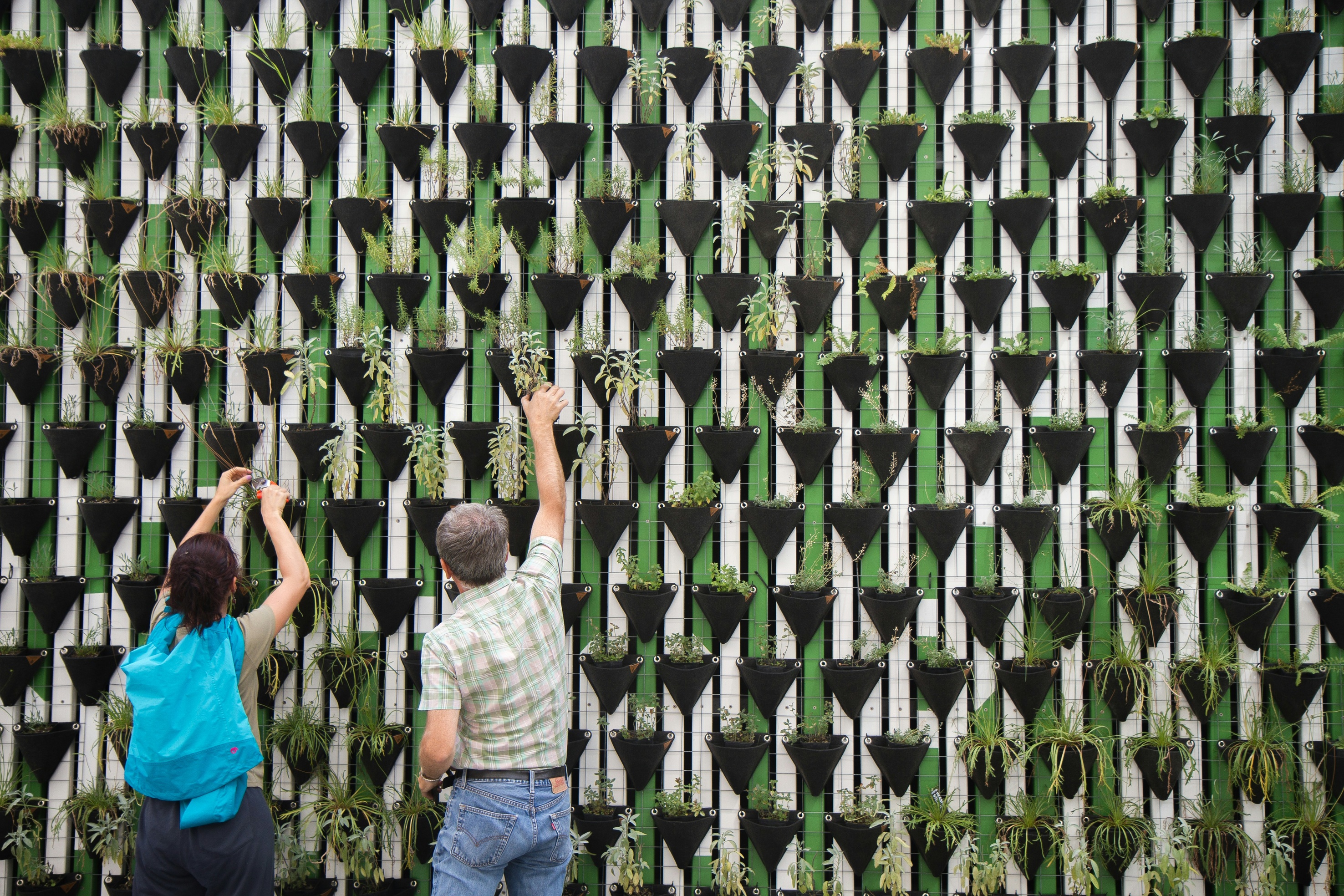
InkWell Academic Writing Workshop
In September, the Obermann Center and the Office of the Vice President for Research partnered to offer "Ready, Set, Flow: How to Make the Most of Your Writing Time This Fall." In this virtual workshop, Dr. Michelle Boyd of InkWell Academic Writing Retreats helped 60 faculty, academic staff, and graduate student participants from across the UI craft their fall writing plans.
Participants represented the Colleges of Liberal Arts & Sciences, Education, Engineering, Law, Medicine, Nursing, Public Health, and Business.
60
"Excellent blend of practical information, opportunities to practice, and building community. I felt energized and efficacious after the session."
Co-Sponsorships
In 2023-24, we co-sponsored everything from an Out of the Archives film series to the Midwest Graduate Music Consortium Conference to Iowa City Darwin Day.
A few highlights:
- Out of the Archive: Envisioning Blackness (film series)
- Humanities in Medicine: Lecture by Writer-Physician Dr. Liana Meffert
- Lecture/Discussion featuring award-winning Haitian writer Kettly Mars and Professor Nathan Dize (Washington University-St Louis)
- Winter Institute for Teaching with Writing
- Craft Critique Culture Graduate Conference: Black Legacies
- Second Language Acquisition Graduate Symposium
- Midwest Graduate Music Consortium Conference 2024
28

"Students were thrilled to meet authors whose works were studied in class. They emphasized the importance of the humanities, as the field provides essential skills to engage critically with the predicaments of our contemporary world."
Externally Funded Programs
Mellon Humanities for the Public Good: Integrative, Collaborative, Practice-Based Graduate Education
After five and a half years of generous funding by the Mellon Foundation, the Humanities for the Public Good (HPG) graduate initiative has produced a bountiful harvest. Initially, after widespread consultation on campus, P.I. Teresa Mangum proposed creating an interdisciplinary, independent humanities Ph.D. focused on translating advanced studies in the humanities into professional training for multiple careers. Halfway through the project, Mangum and the faculty, graduate student, and staff advisory board proposed, instead, to integrate those goals throughout humanities graduate programs, a plan Mellon heartily endorsed. The program has hosted postdoctoral fellows, supported 43 graduate summer interns at nonprofits over five summers, and offered course redesign mini-grants that led to the rethinking of numerous courses including introductions to graduate degrees in English, Spanish and Portuguese, French, and Cinematic Arts. Eight summer curriculum grants helped faculty restructure graduate seminars across seven departments into “humanities labs” in which students balance research and writing with hands on experiences with community organizations. The first labs offered students opportunities to plan film festivals, created exhibitions from archives, worked with Midwestern tribes on public history projects, and documented language communities in Iowa. In addition, hundreds of faculty, staff, and students from across the country as well as the campus participated in campus symposia and online workshops that generated democratic, inclusive ways to organize projects, use design thinking principles, and adapt humanities values and methods to diverse careers. These projects have given the University of Iowa national visibility as a leader in imaginative graduate education in the humanities and set the table for ongoing future experiments with admissions, course designs, and diverse dissertations, as well as a future certificate in publicly engaged humanities scholarship and practice. Stay tuned for our own harvest celebration—a Pressbook documenting the many contributions of our faculty, students, and staff to this project along with recommendations for the future.
On March 1 and 2, 2024, we celebrated the exciting outcomes of the HPG grant with a two-day symposium featuring leaders of innovative graduate programs that see the humanities as crucial to the public good. We shared our successes and advanced the work of building a local and national learning community of students, staff, and faculty committed to new possibilities for graduate education in the humanities. View the schedule and presenters.
Photo at left: Iowa City Farm to Street Dinner, Christopher Hunter
Humanities Without Walls
For seven years, the Obermann Center has been a member of the Mellon-funded Humanities Without Walls consortium of 16 Midwestern university humanities centers. A key part of HWW is encouraging and offering programming for humanities graduate students to learn about careers beyond the professoriate.
In fall 2023, we held a networking event that brought together 35 faculty and graduate students to practice communicating effectively with the leaders of local organizations and business owners.
In summer 2024, the Obermann Humanities Without Walls Faculty Externship on Graduate Career Diversity placed nine faculty members with local nonprofits in an externship. Unlike an internship, which might include full-time work doing a project for a host organization, an externship is a short-term professional learning experience. Instead of asking students to do the work of learning about adjacent careers, the faculty externs gained first-hand experience in the world of work beyond the classroom. The goal of this program was to train faculty externs to better encourage and support graduate students who wish to prepare for diverse careers and provide nonprofit mentors a deeper understanding of what humanities graduates can offer as future employees.
Faculty and Nonprofit Participants:
- Public Space One — Nonprofit mentor: John Engelbrecht, director
Faculty externs: Diana Thow, Translation, CLAS; Katy Ambrose, Music, CLAS; Andy Owens, Cinematic Arts, CLAS - The Neighborhood Centers — Nonprofit mentors: Rachel Rockwell, executive director, and RaQuishia Harrington, associate director
Faculty externs: Lina-Maria Murillo, GWSS, History, Latina/o/x Studies, CLAS; Brady G’Sell, GWSS, Anthropology, CLAS; Roxanna Curto, Spanish & Portuguese, French, Latin American Studies, CLAS - Iowa City Public Library Friends Foundation — Nonprofit mentor: Katie Roche, development director
Faculty externs: Jiyeon Kang, Communication Studies, CLAS; Jose Fernandez, Latina/o/x Studies Program, CLAS, Center for Worker Justice; Christine Zabala-Eisshofer, Higher Education and Student Affairs, College of Education
This program is possible thanks to the generous funding of the Mellon-funded Humanities Without Walls Consortium. The program is co-sponsored by the UI College of Liberal Arts and Sciences, the Graduate College, and the Office of Community Engagement.

"The Obermann Center Humanities Without Walls Faculty Externship Program on Graduate Career Diversity has been invaluable to me both personally and professionally. Not only was I paired with a local non-profit and welcomed with open arms, but I learned the intricate ins-and-outs of sustaining such an organization, both financially and affectively. This program has provided helpful, real world tools that I look forward to passing on to graduate students as they think about entering careers beyond the academy."

"The Obermann Center Externship was a mutually enriching experience. Reframing the work that my organization does and that I do in the world, breaking it down to skills sets that someone entering the field might want to foster in their graduate work, helped me reframe our work on the most fundamental level."
Obermann Celebrates 45 Years & Teresa Mangum's Leadership
On May 6, 2024, the Office of the Vice President for Research hosted a reception at Hancher Auditorium's Stanley Cafe to celebrate the 45th anniversary of the Obermann Center and Center’s outgoing director, Professor Teresa Mangum. The event opened with talks by two guests who have led the way in creating vision and infrastructure for experimental and multi-disciplinary research in the humanities: Joy Connolly, President of the American Council of Learned Societies (ACLS) and Distinguished Professor of Classics at the CUNY Graduate Center and Antoinette Burton, Swanlund Endowed Chair of History and director of the Humanities Research Institute at the University of Illinois Urbana-Champaign, where she leads the Mellon-funded Humanities Without Walls initiative.
Kristy Nabhan-Warren, UI Associate Vice President for Research in the Arts, Humanities, and Social Sciences, and Teresa Mangum, Professor of Gender, Women's, and Sexuality Studies and English—and director of the Obermann Center since 2010—then joined Connolly and Burton for a lively roundtable conversation about their shared passions for the profound questions, sustaining value, lifelong discoveries, and rich communities at the heart of humanities scholarship, teaching, and learning.
Obermann Staff
Director
Teresa Mangum and Luis Martín-Estudillo
Lauren Burrell Cox
Erin Hackathorn
Jenna Hammerich
Thank you to our donors and supporters. Your donations help make this work possible. Every gift makes a difference.


